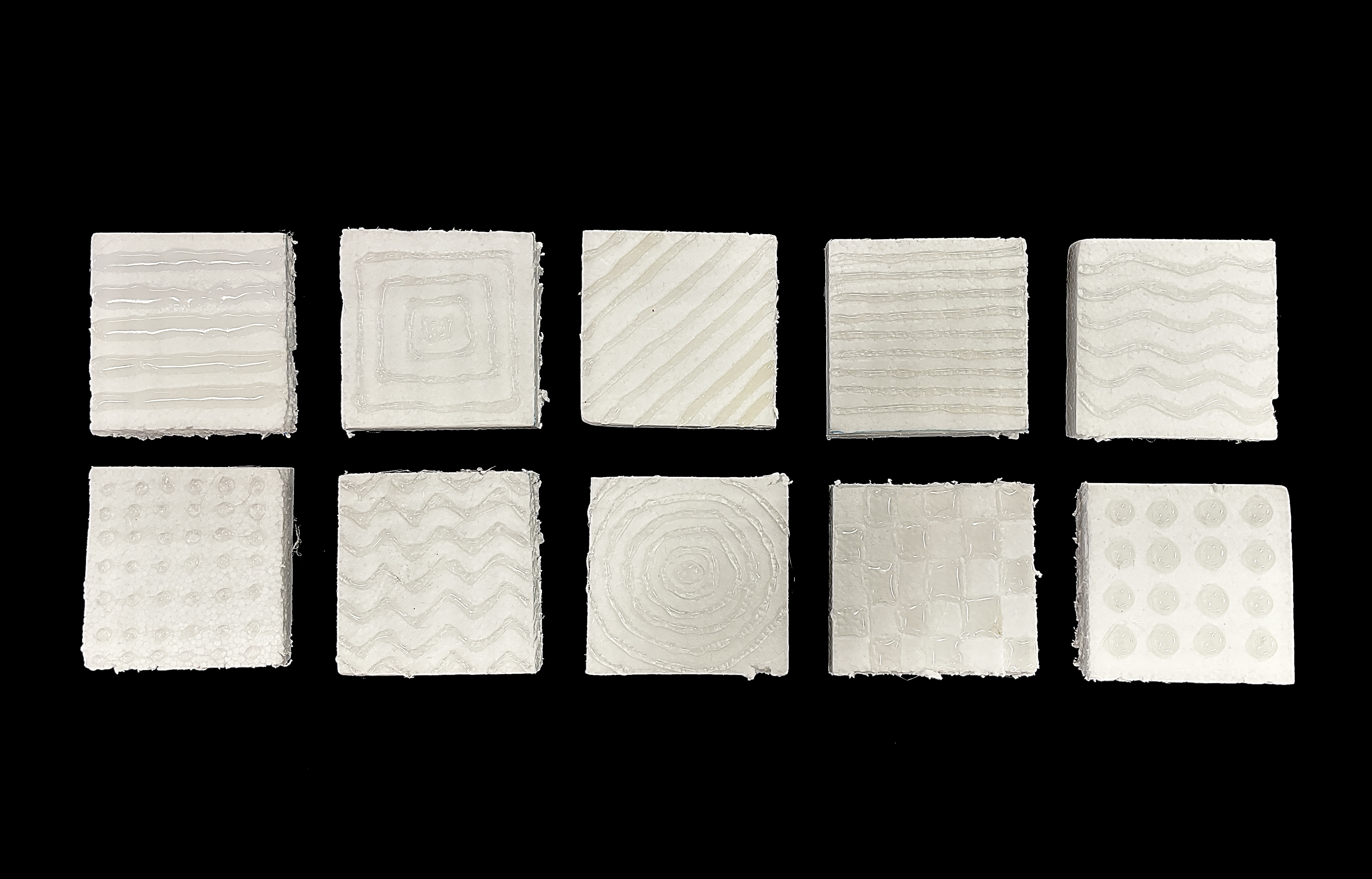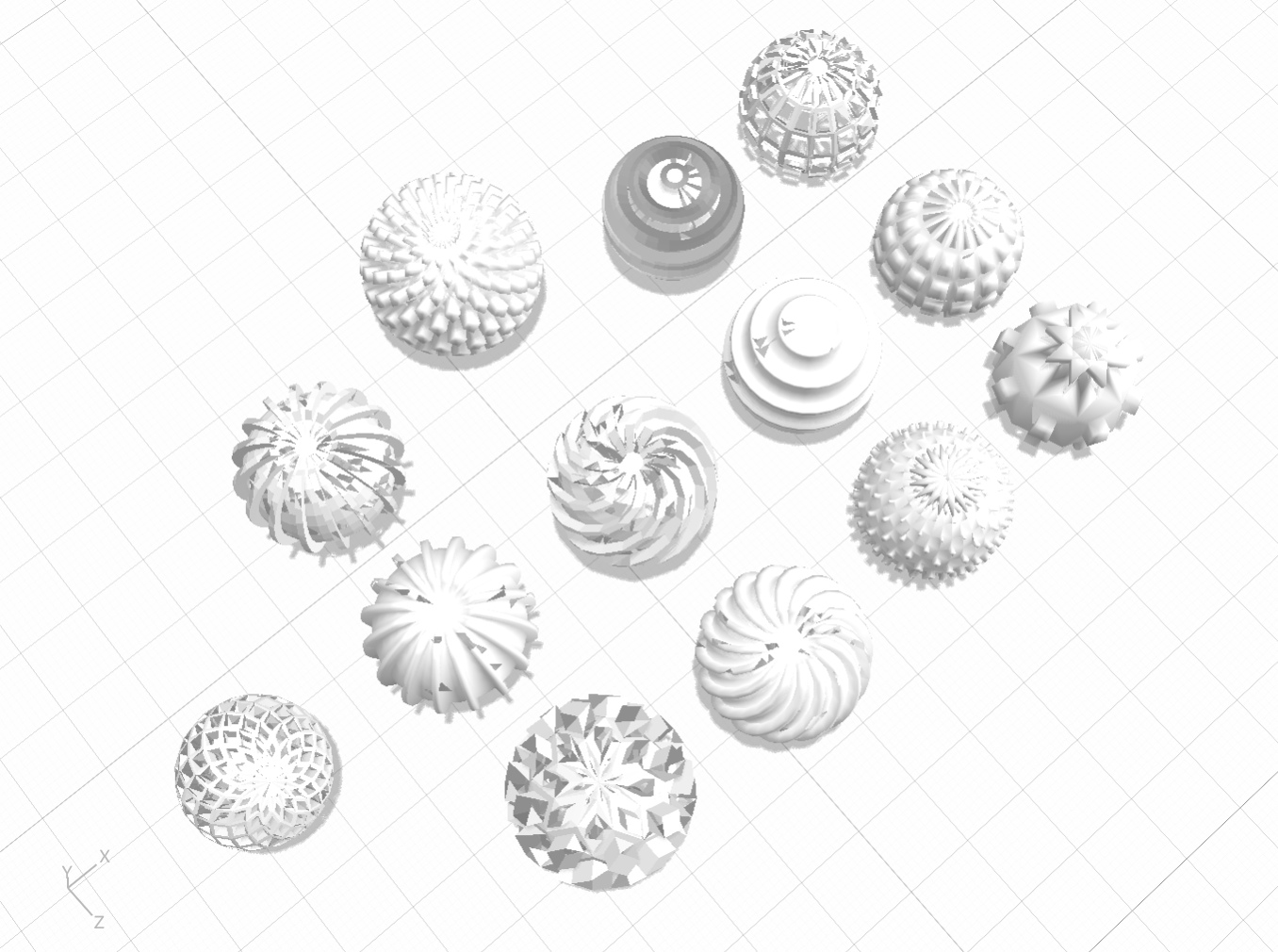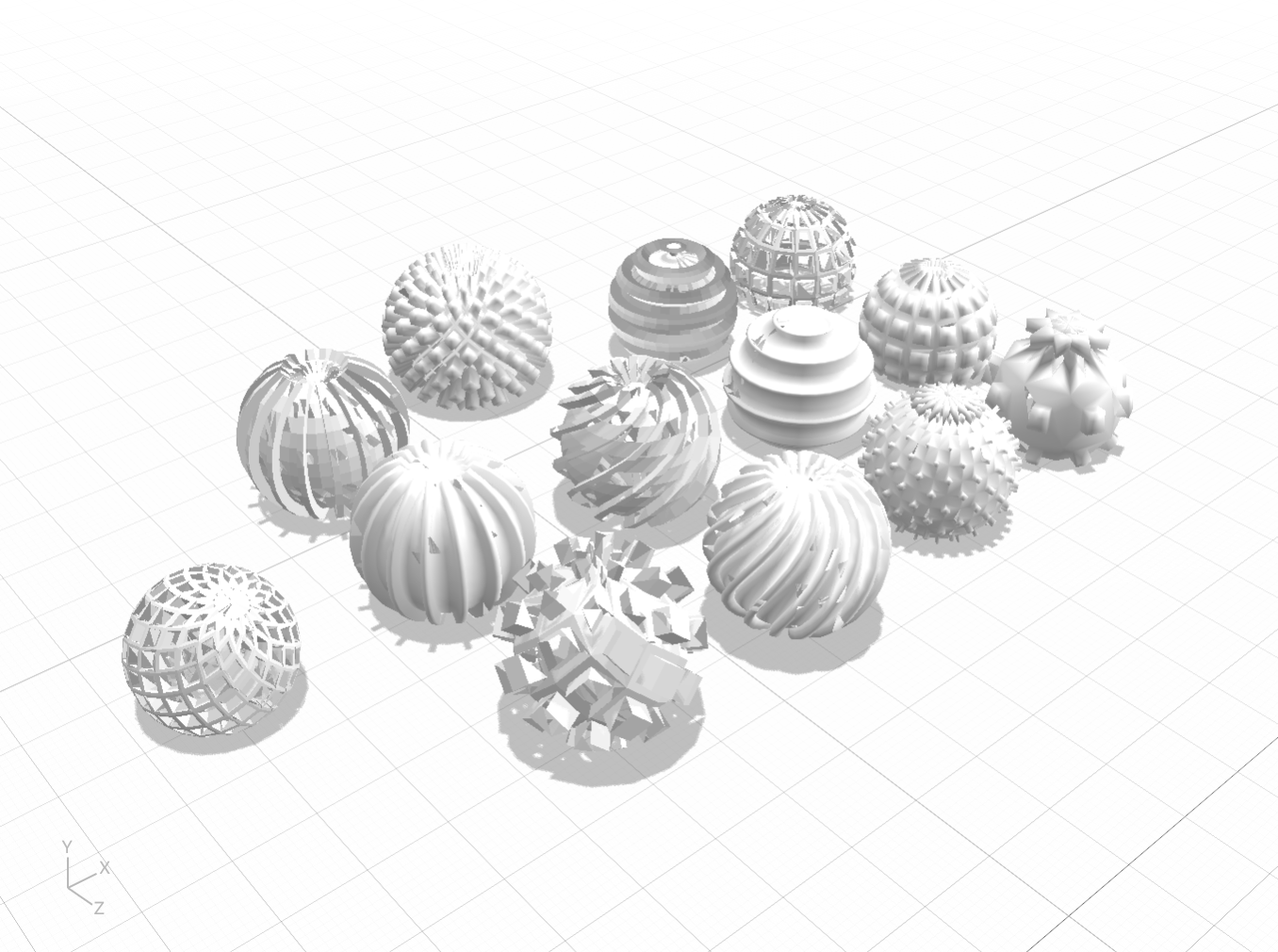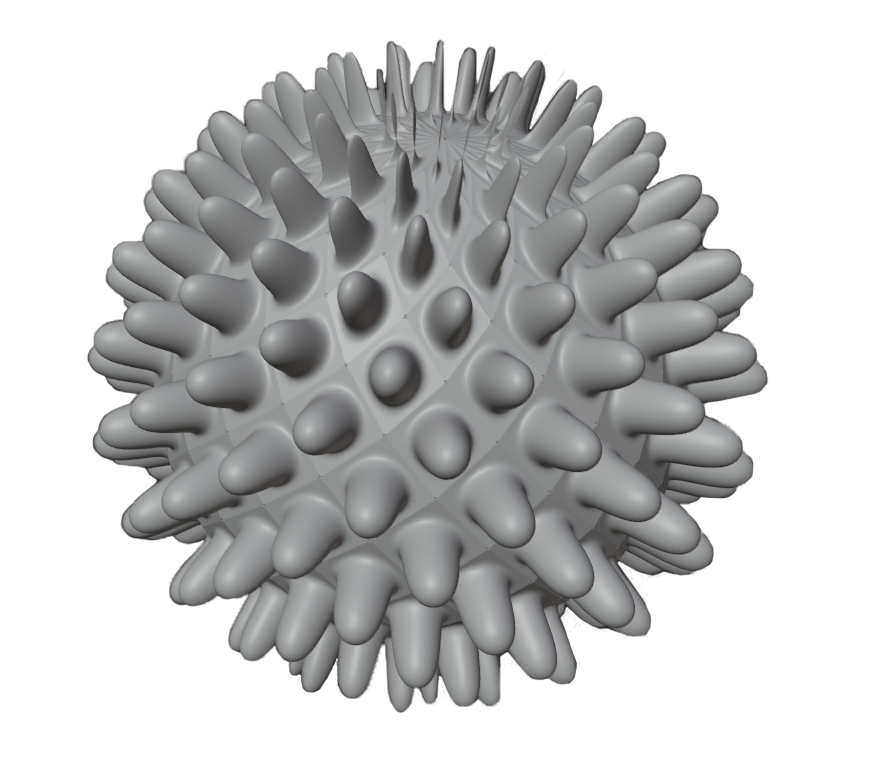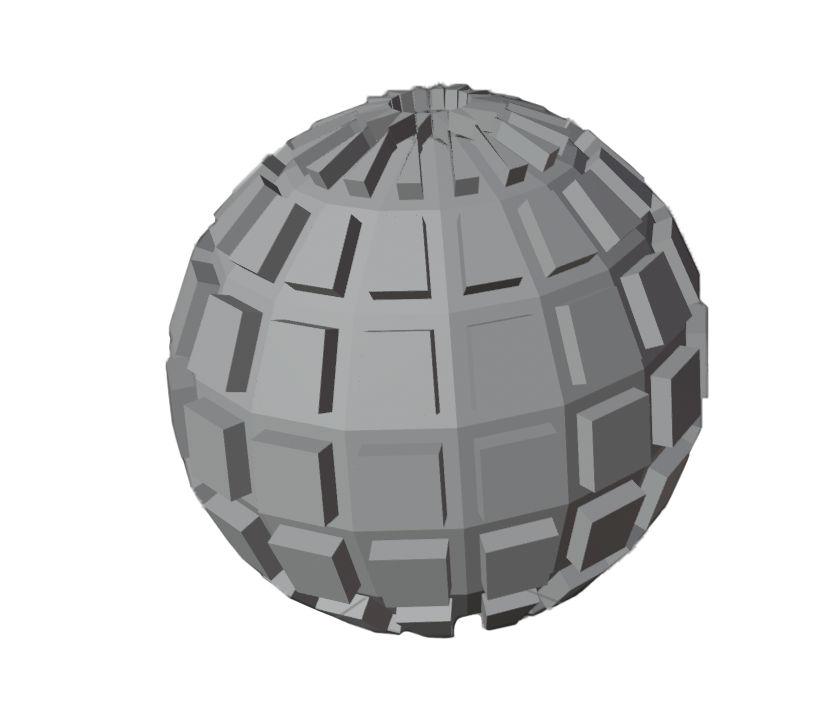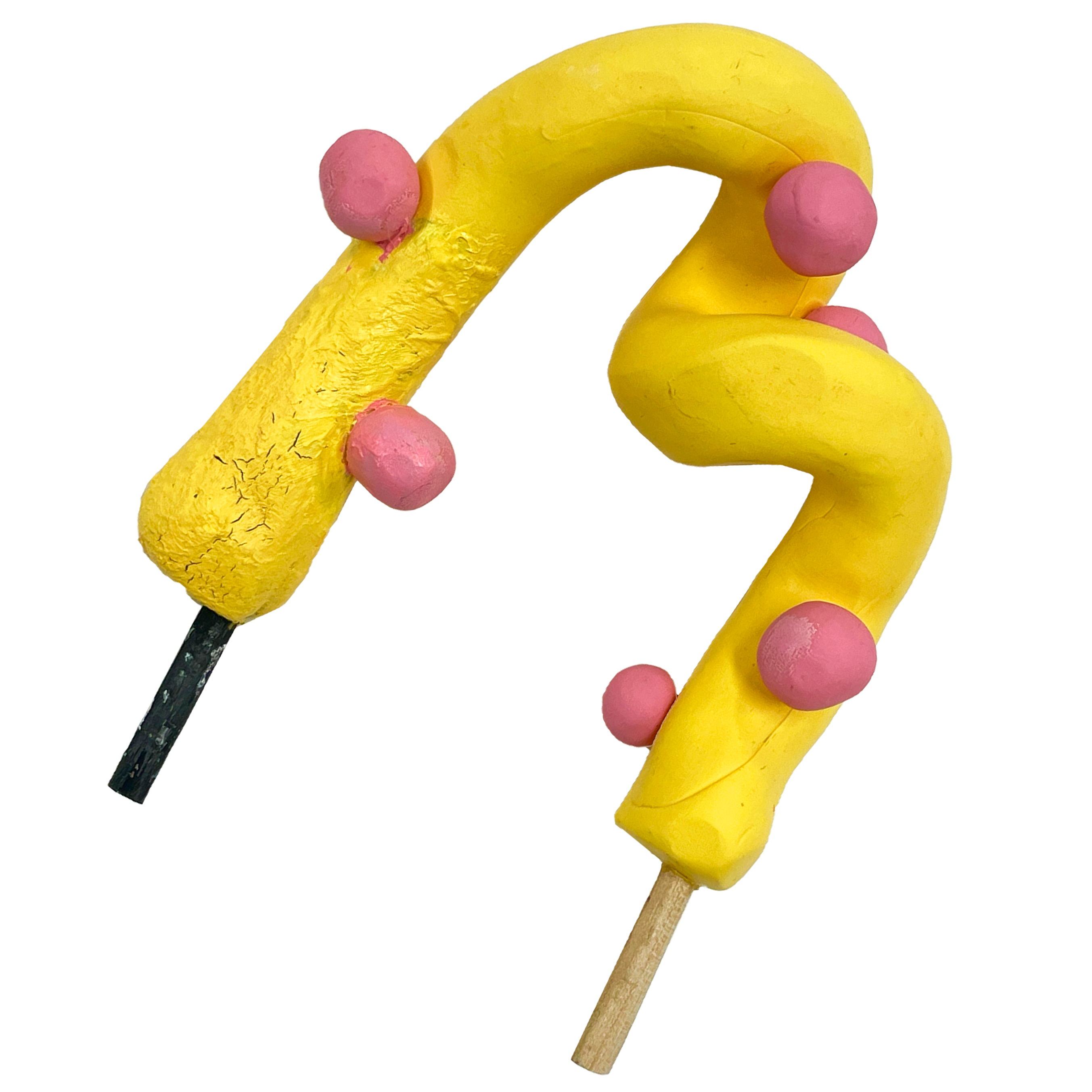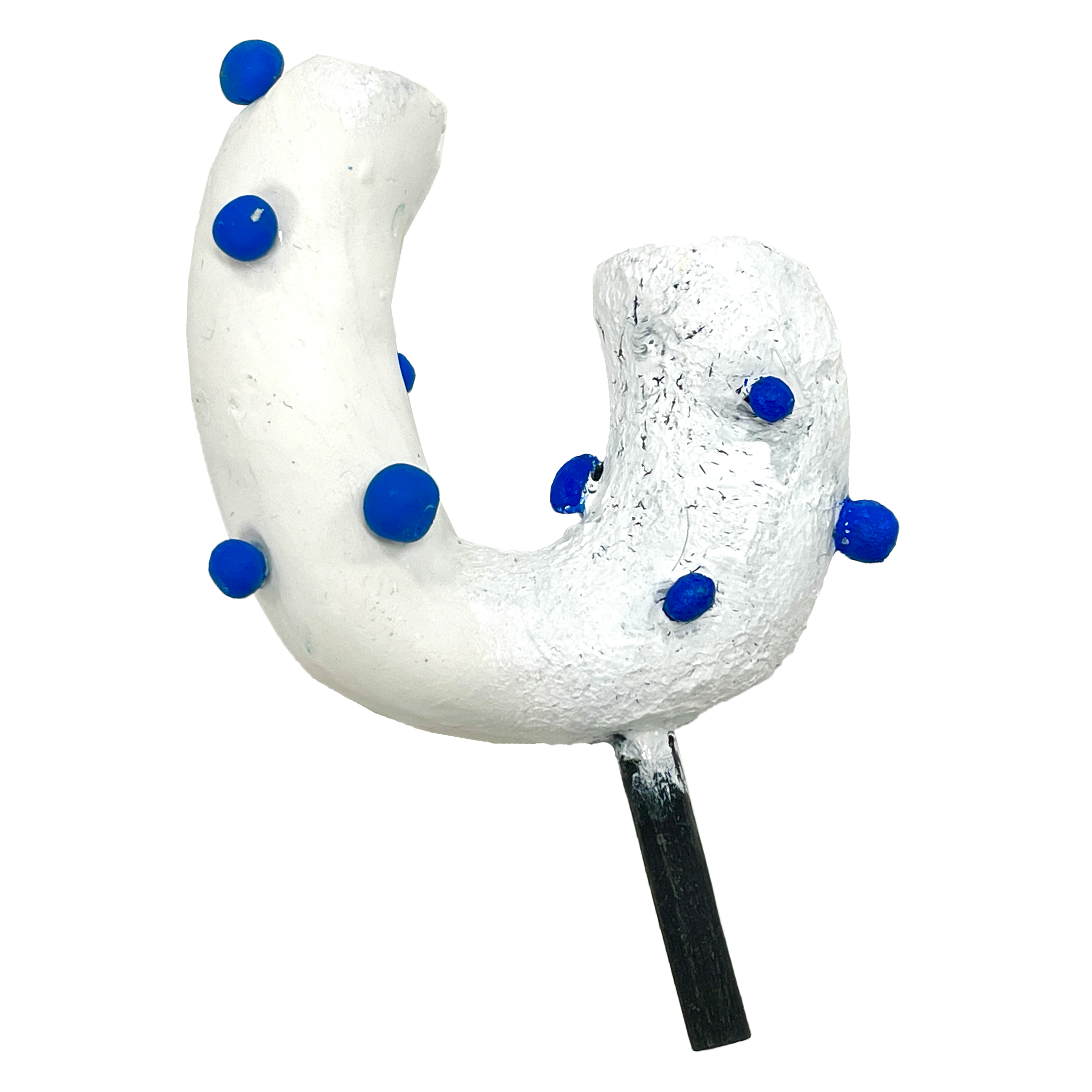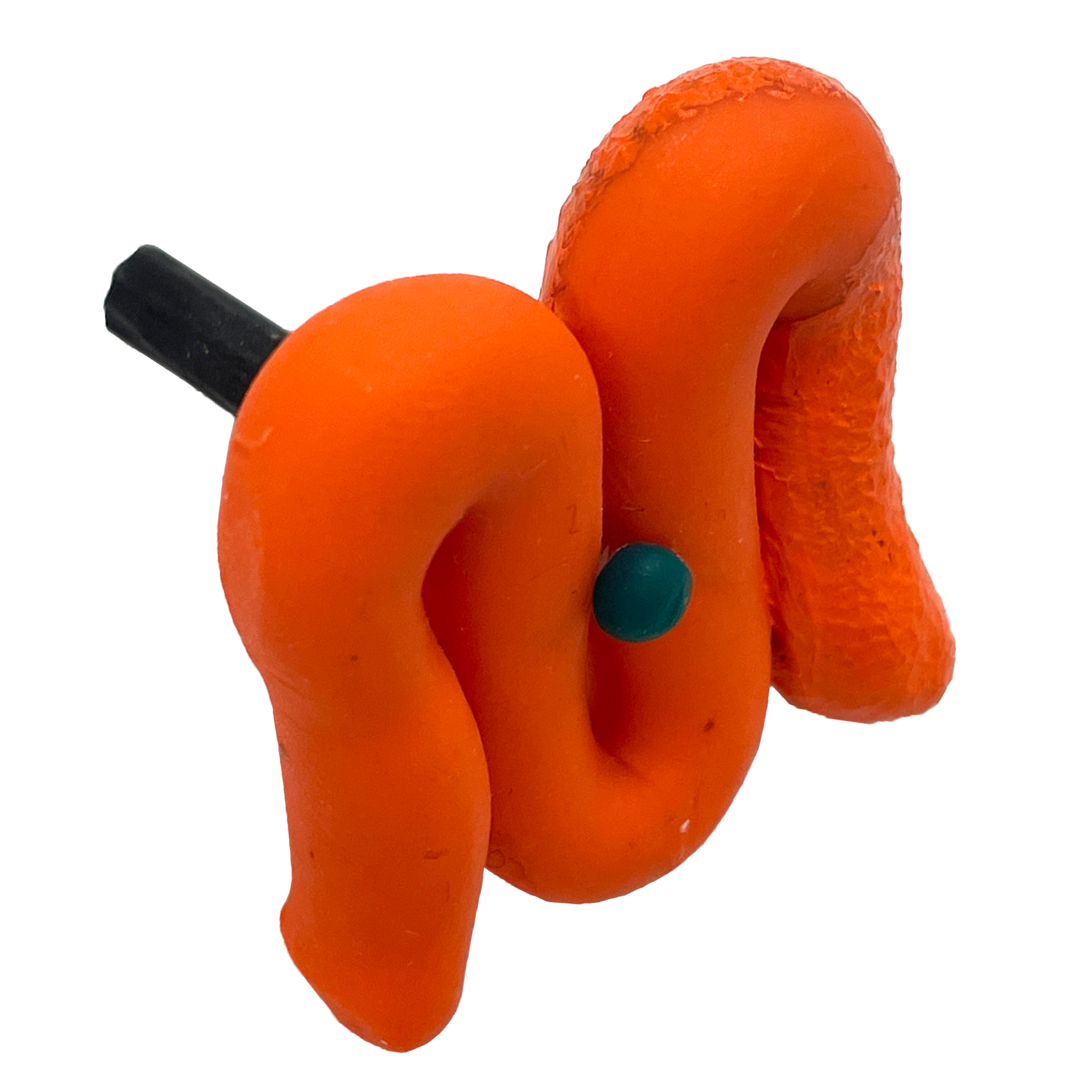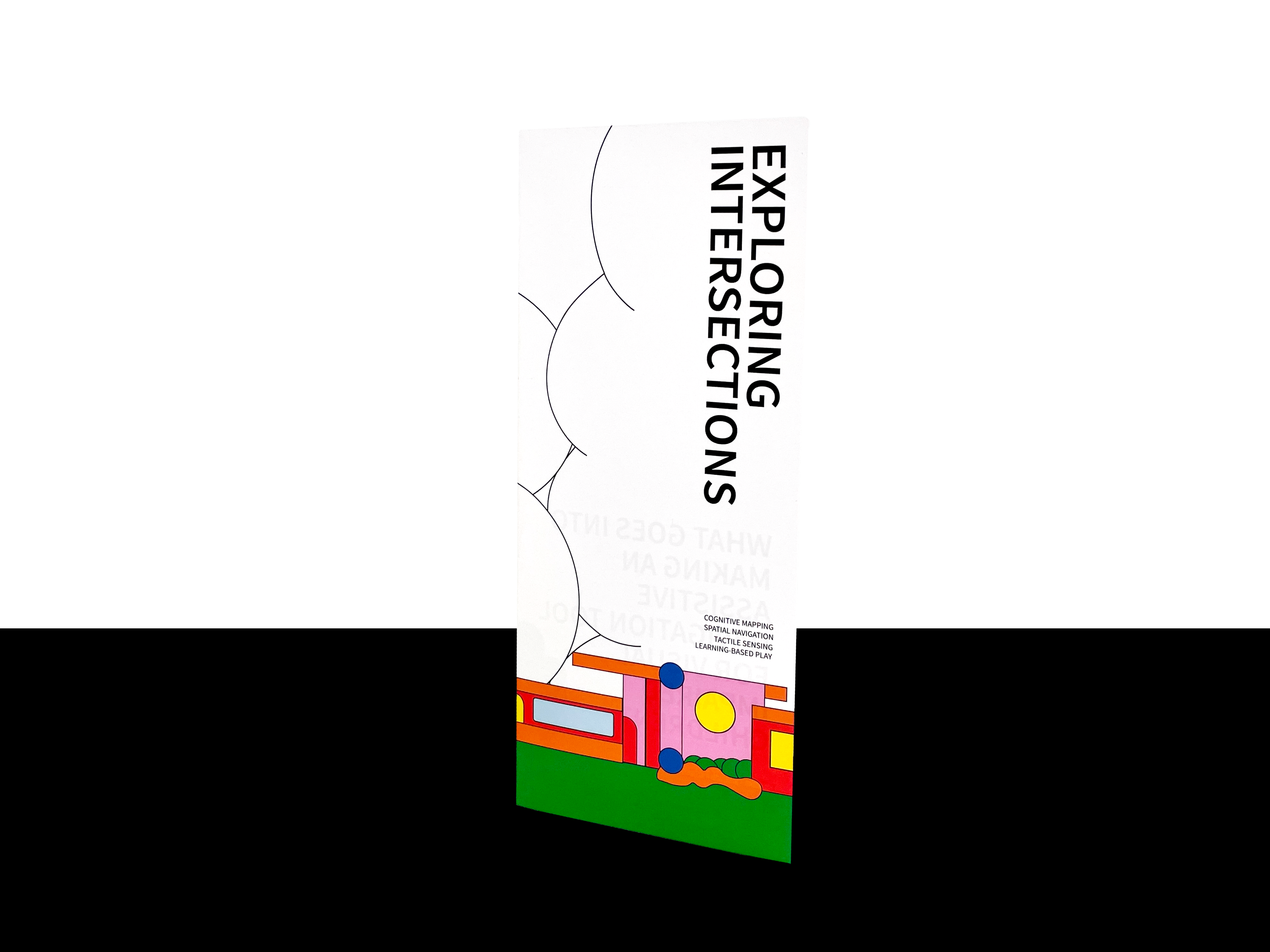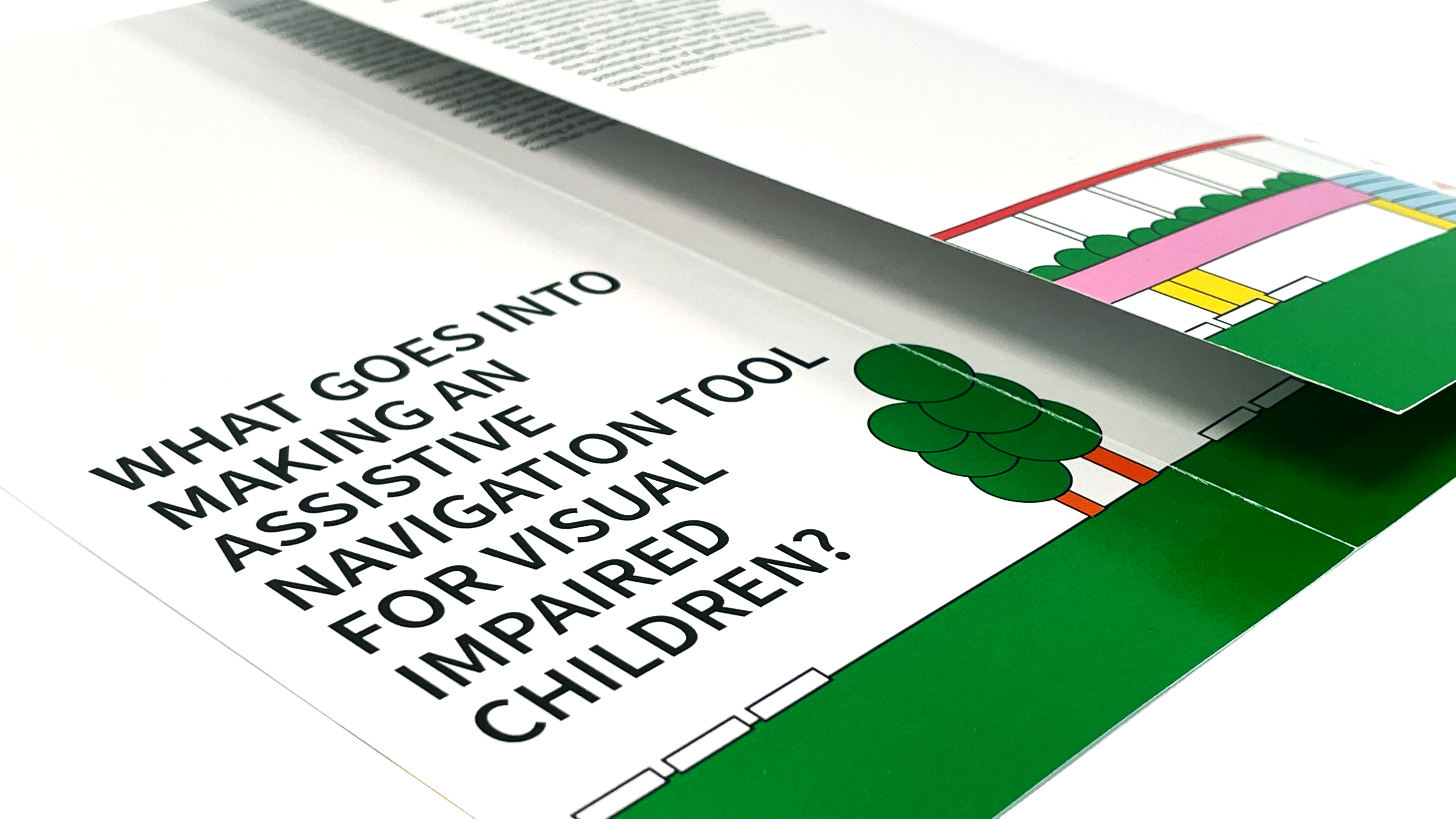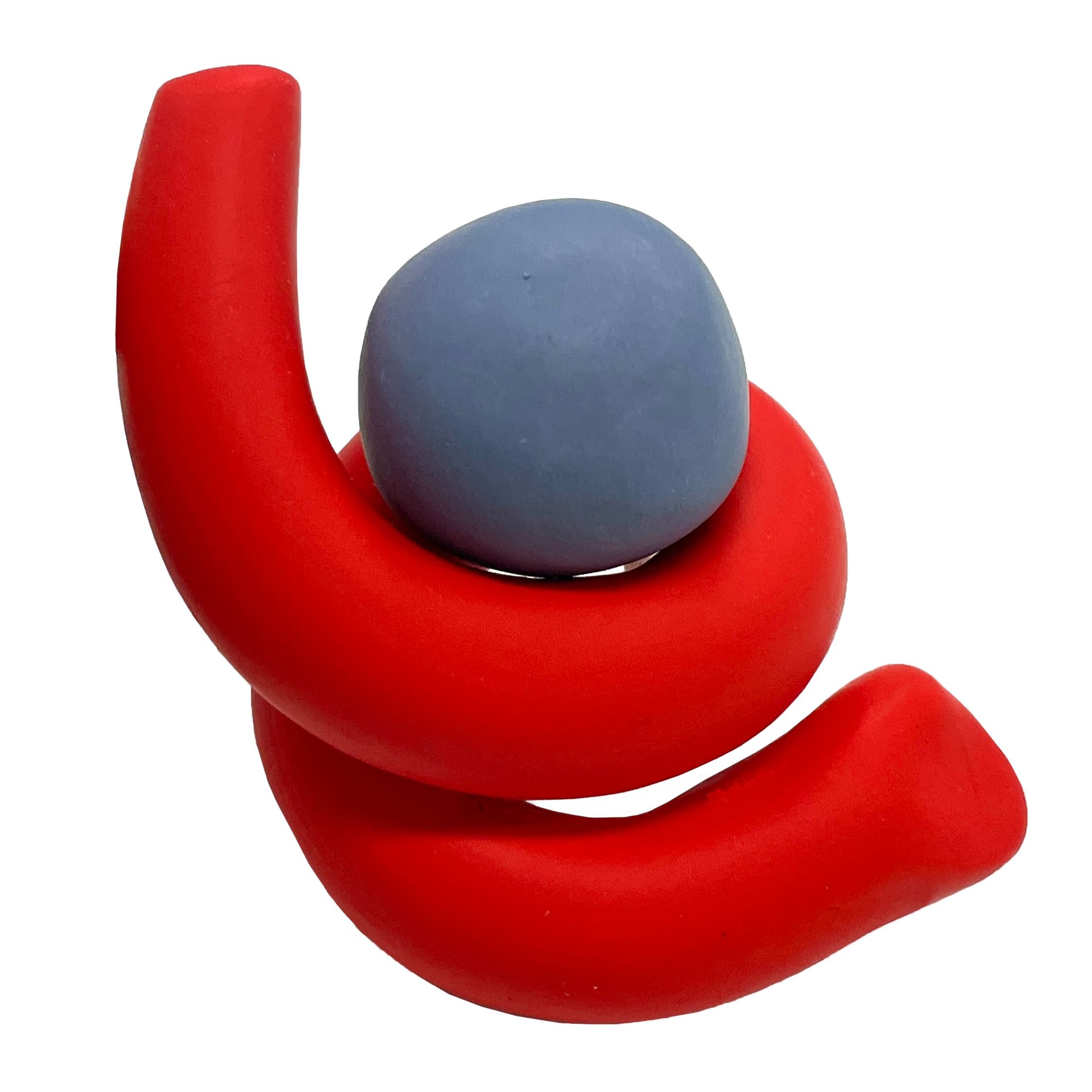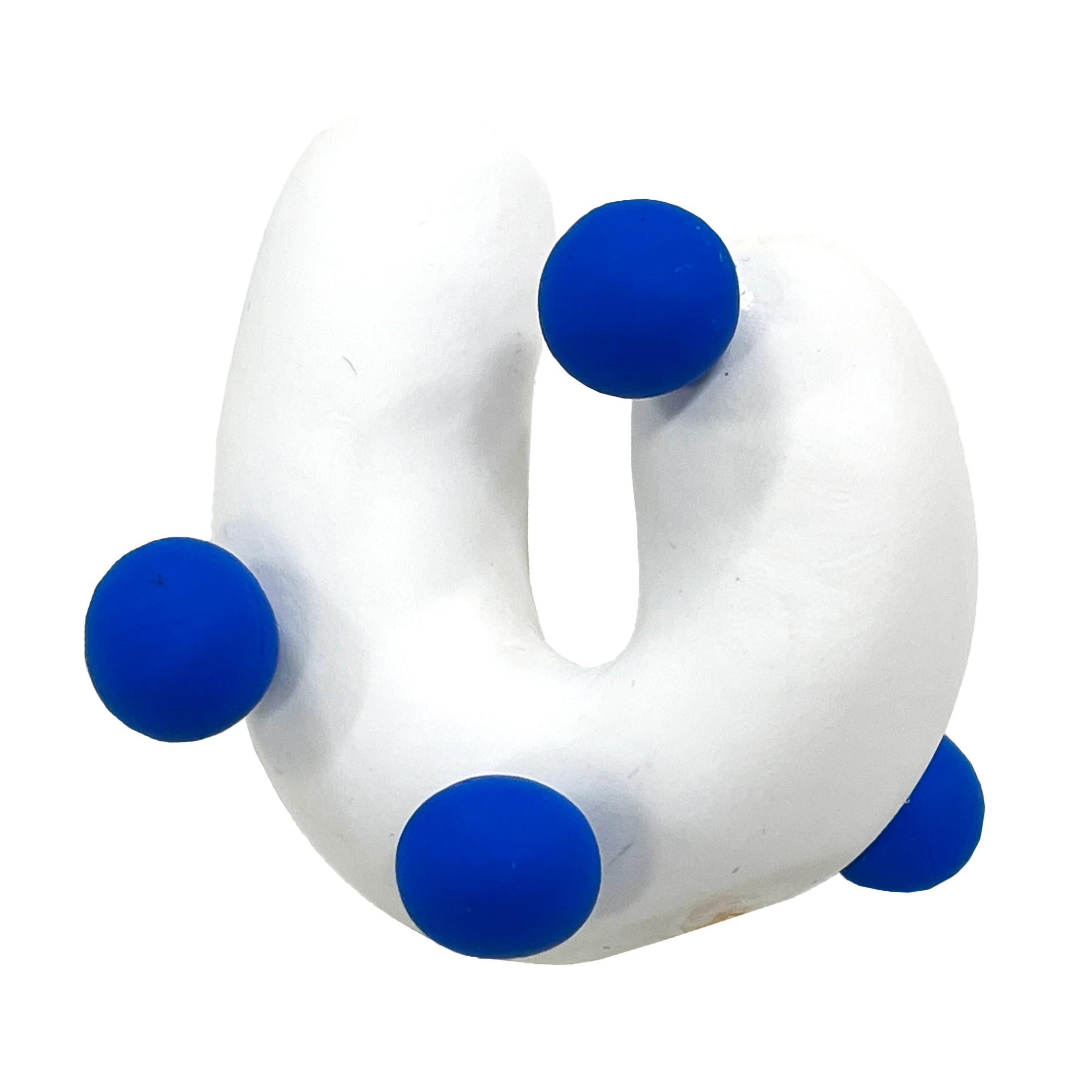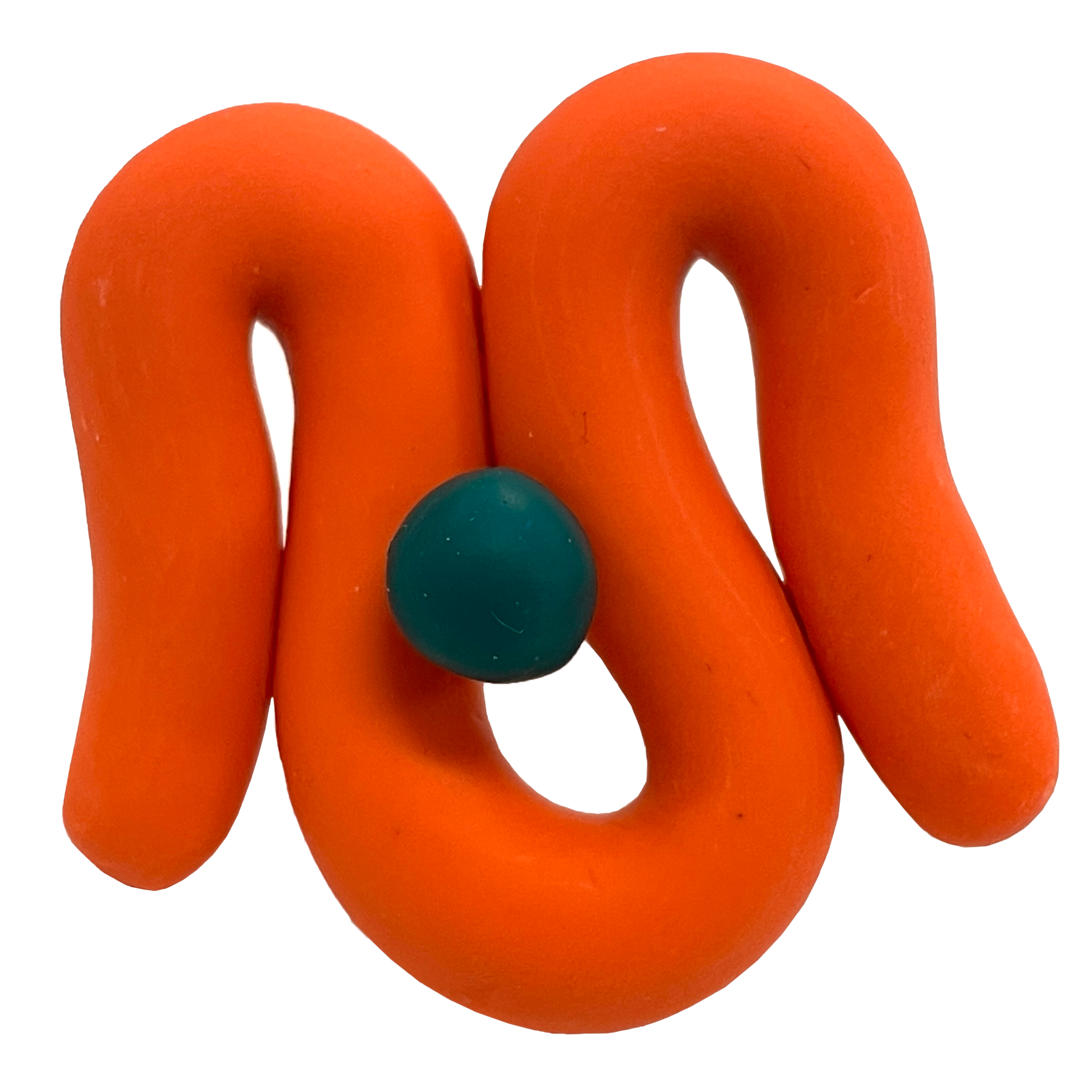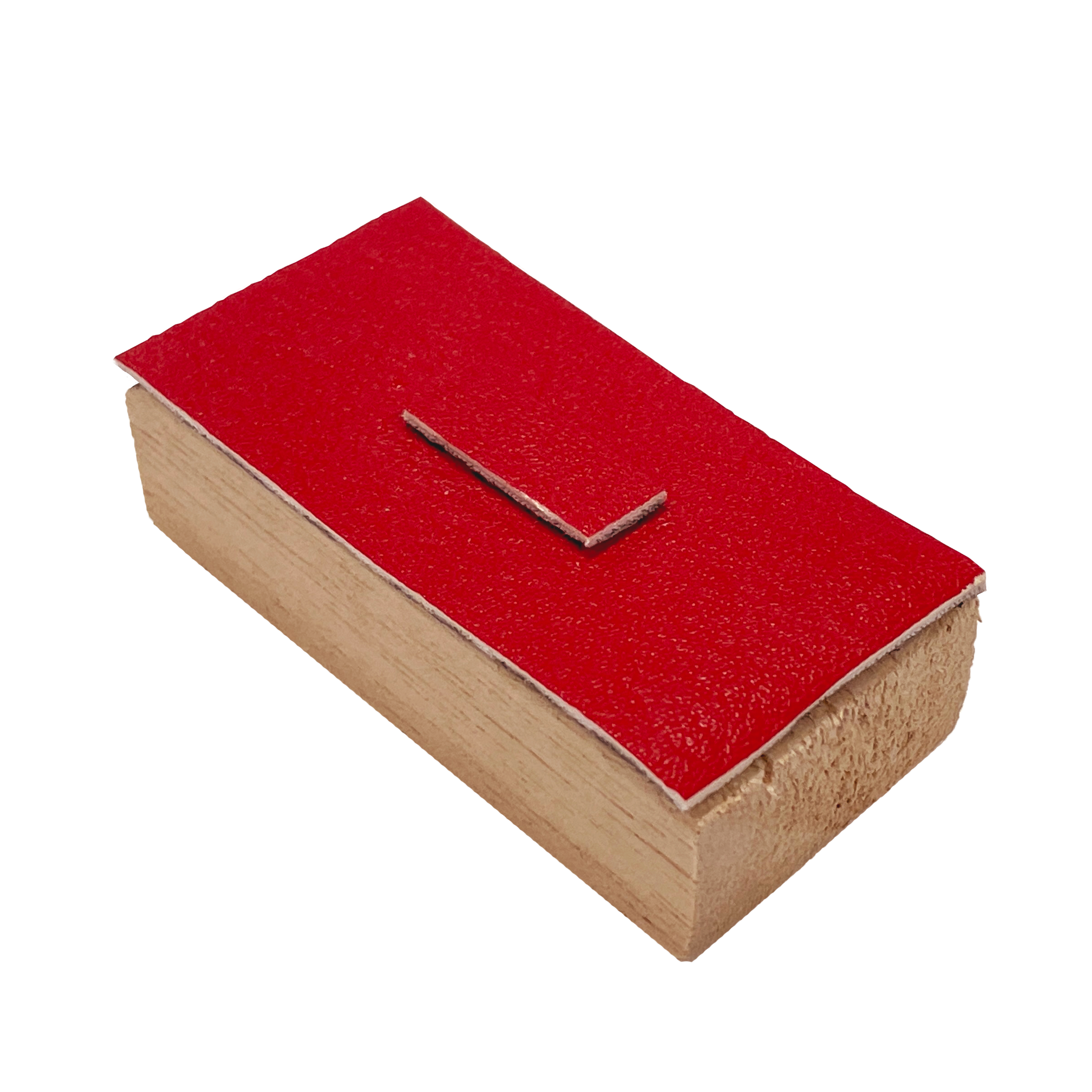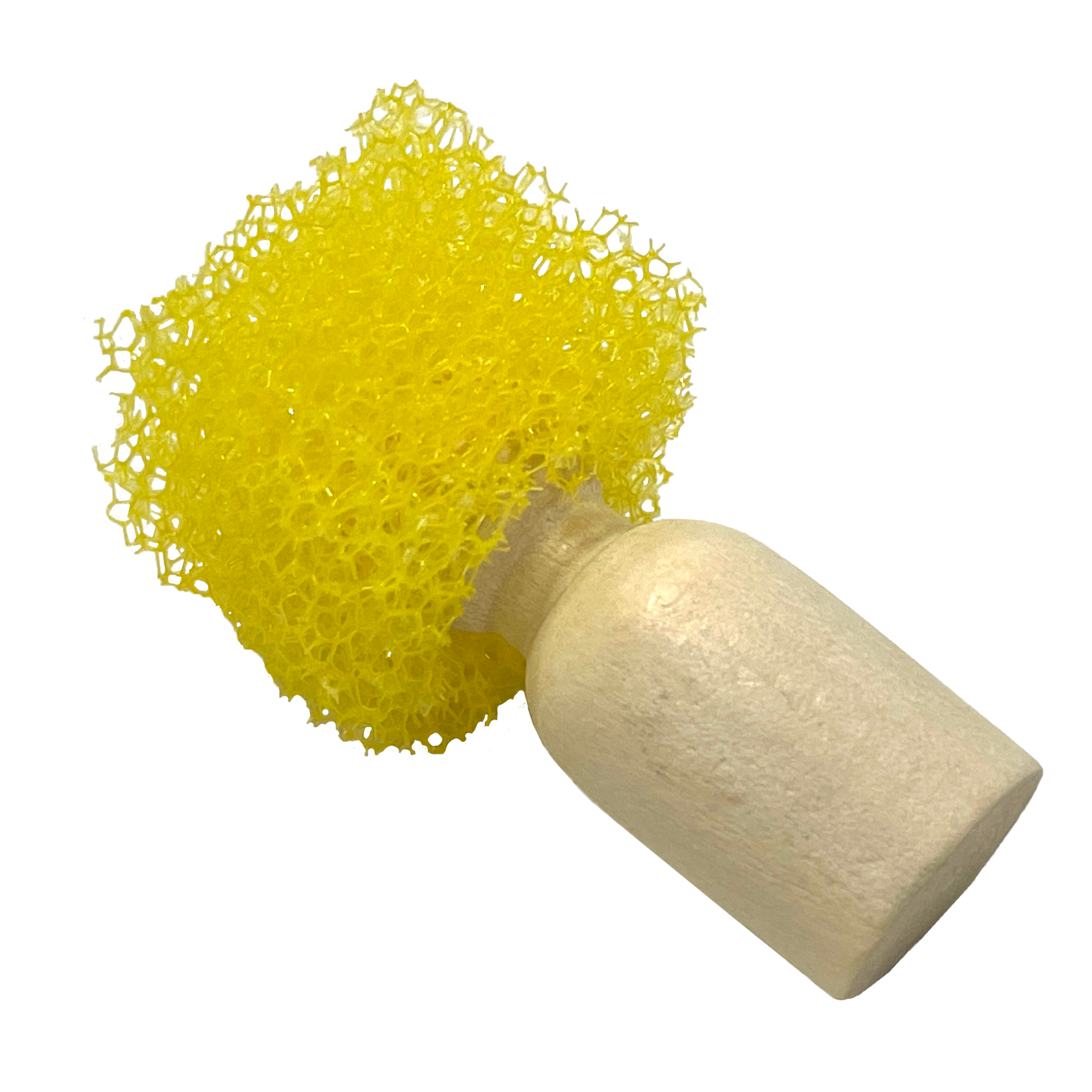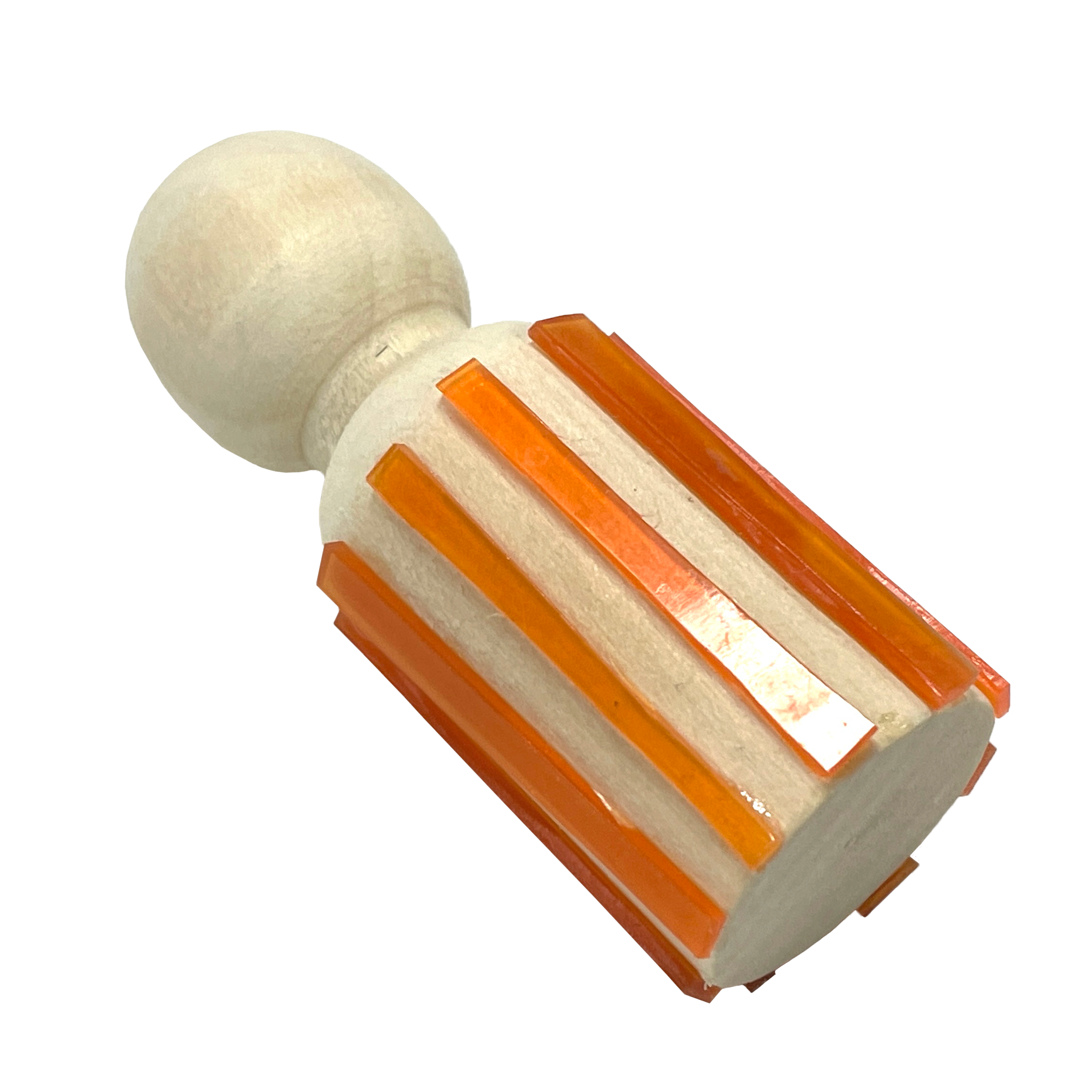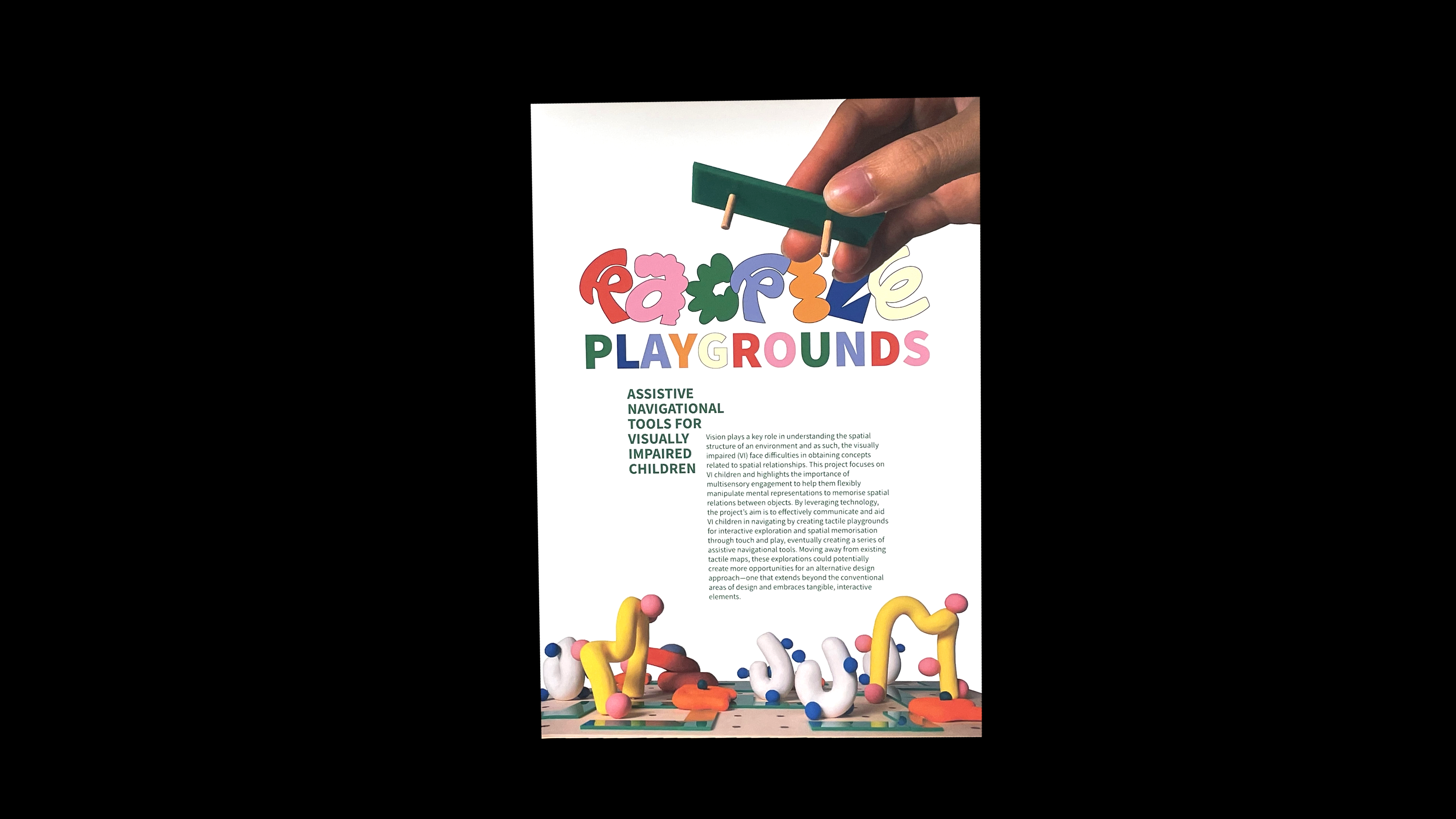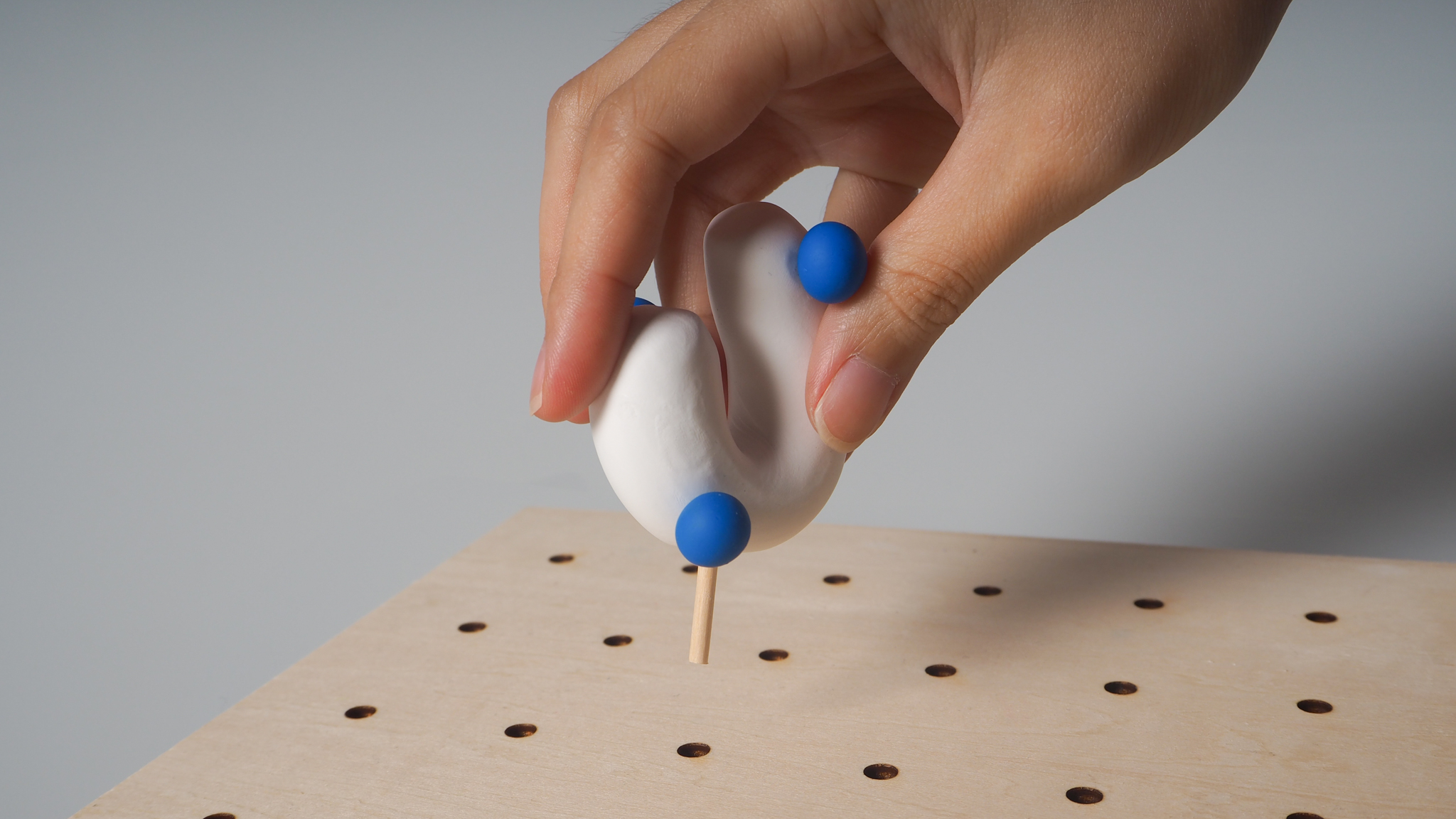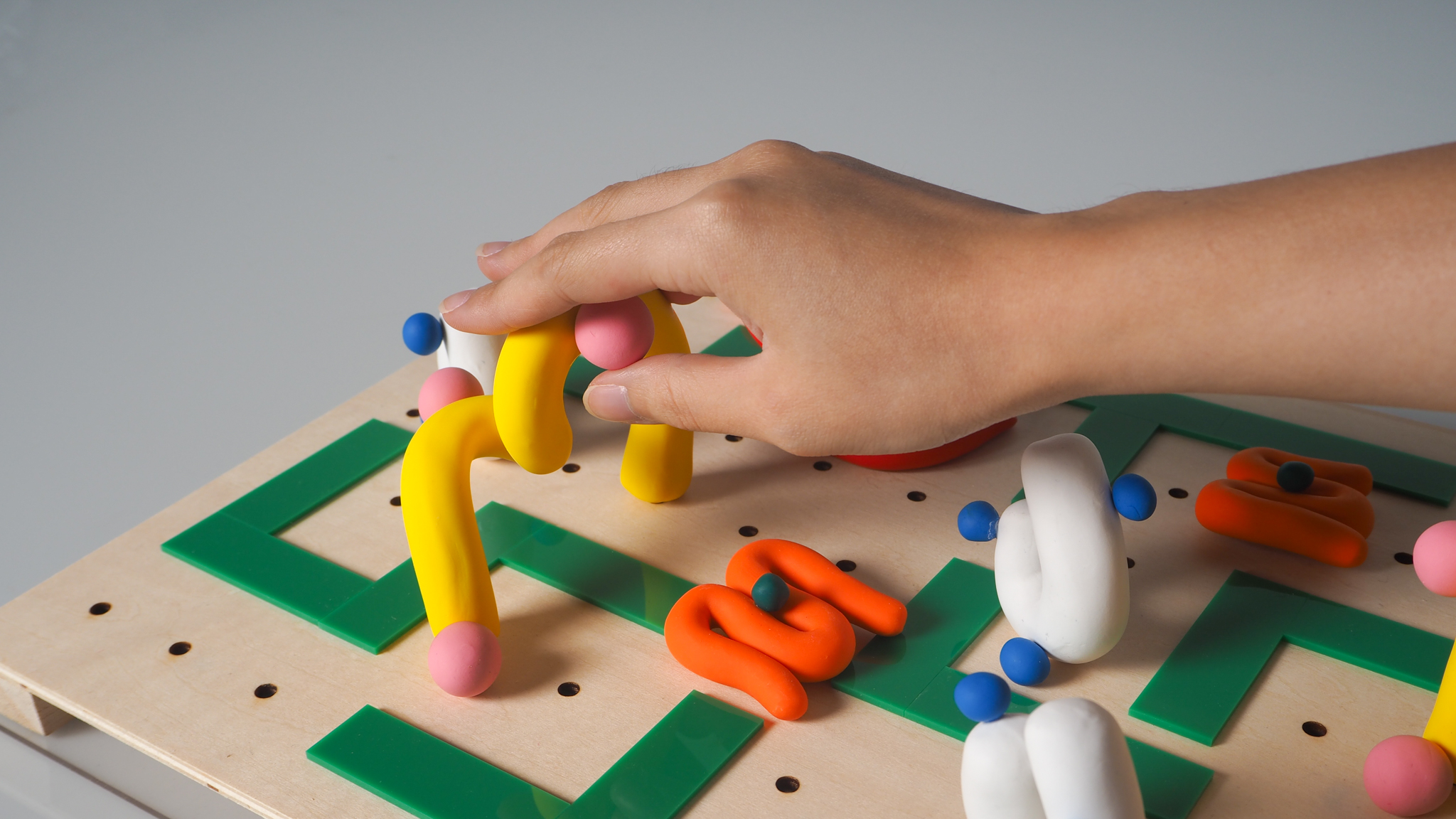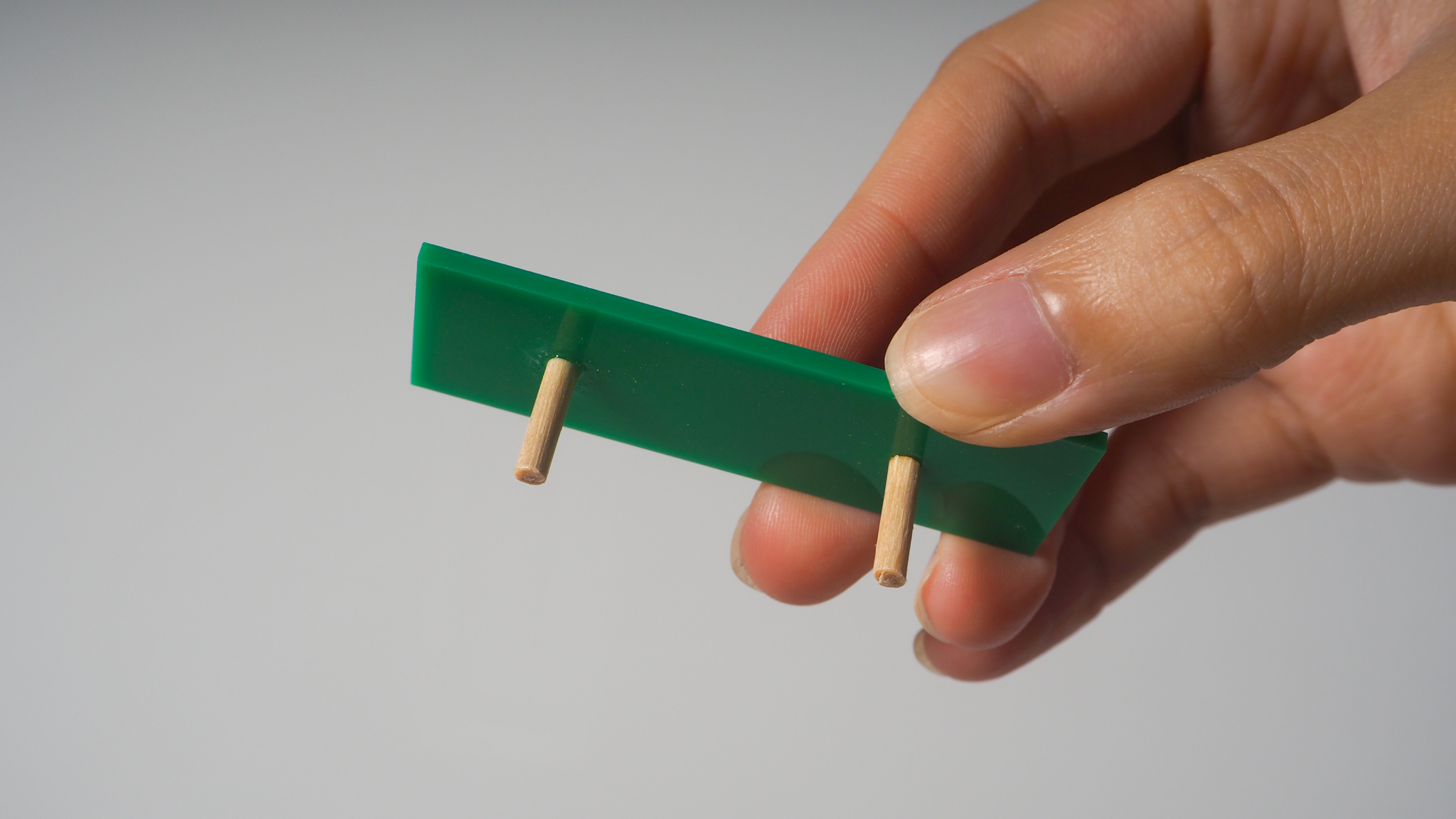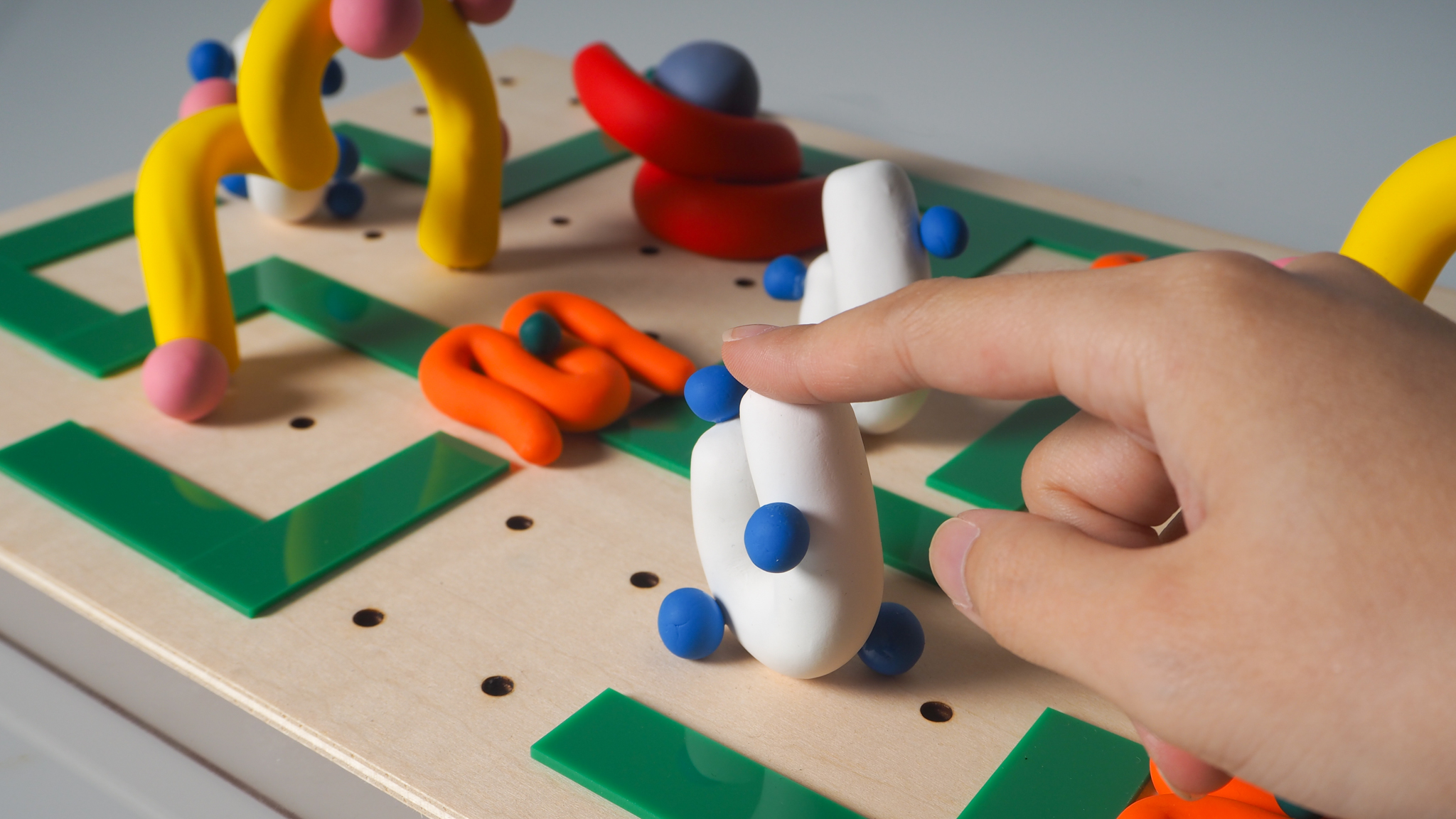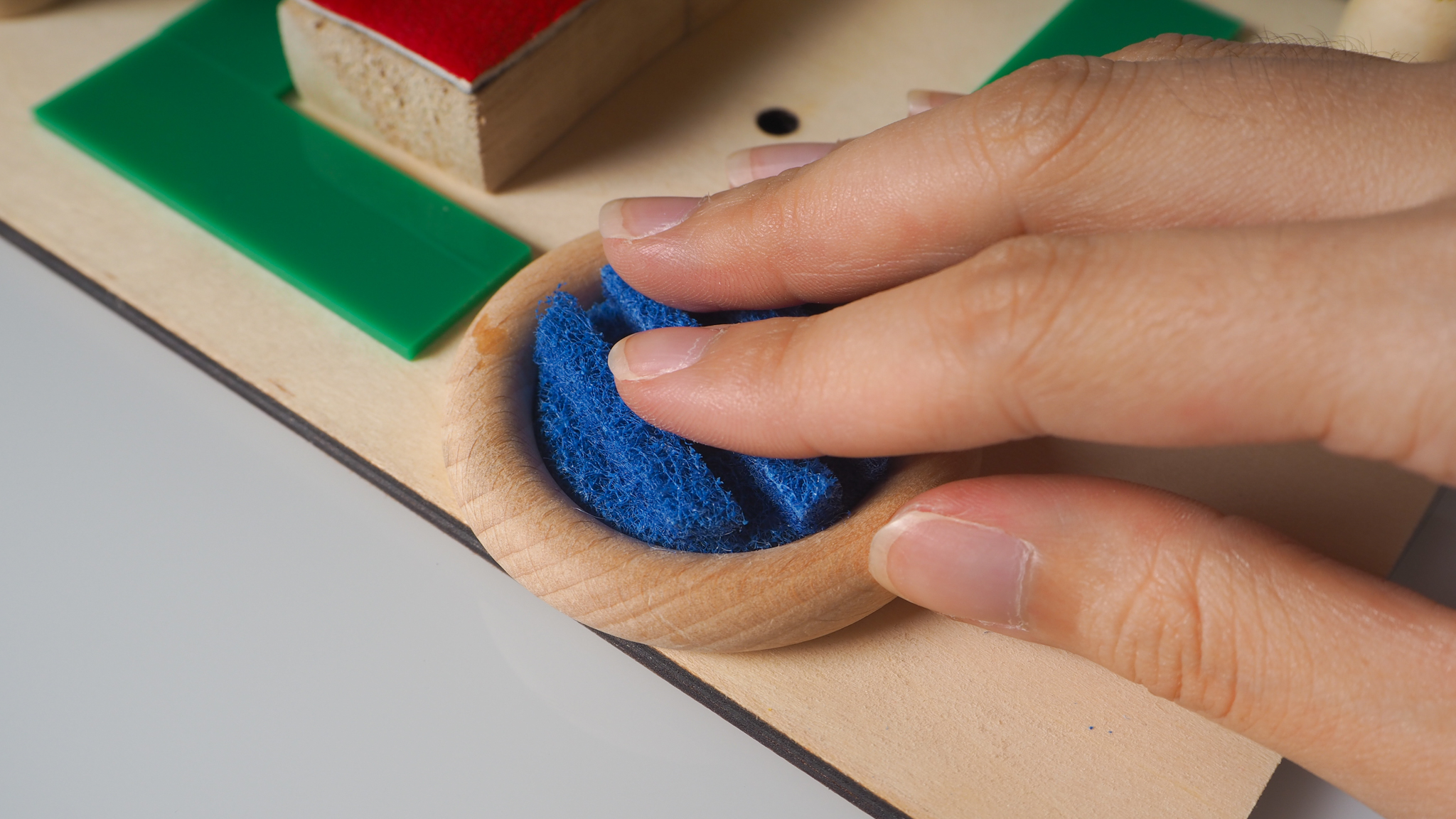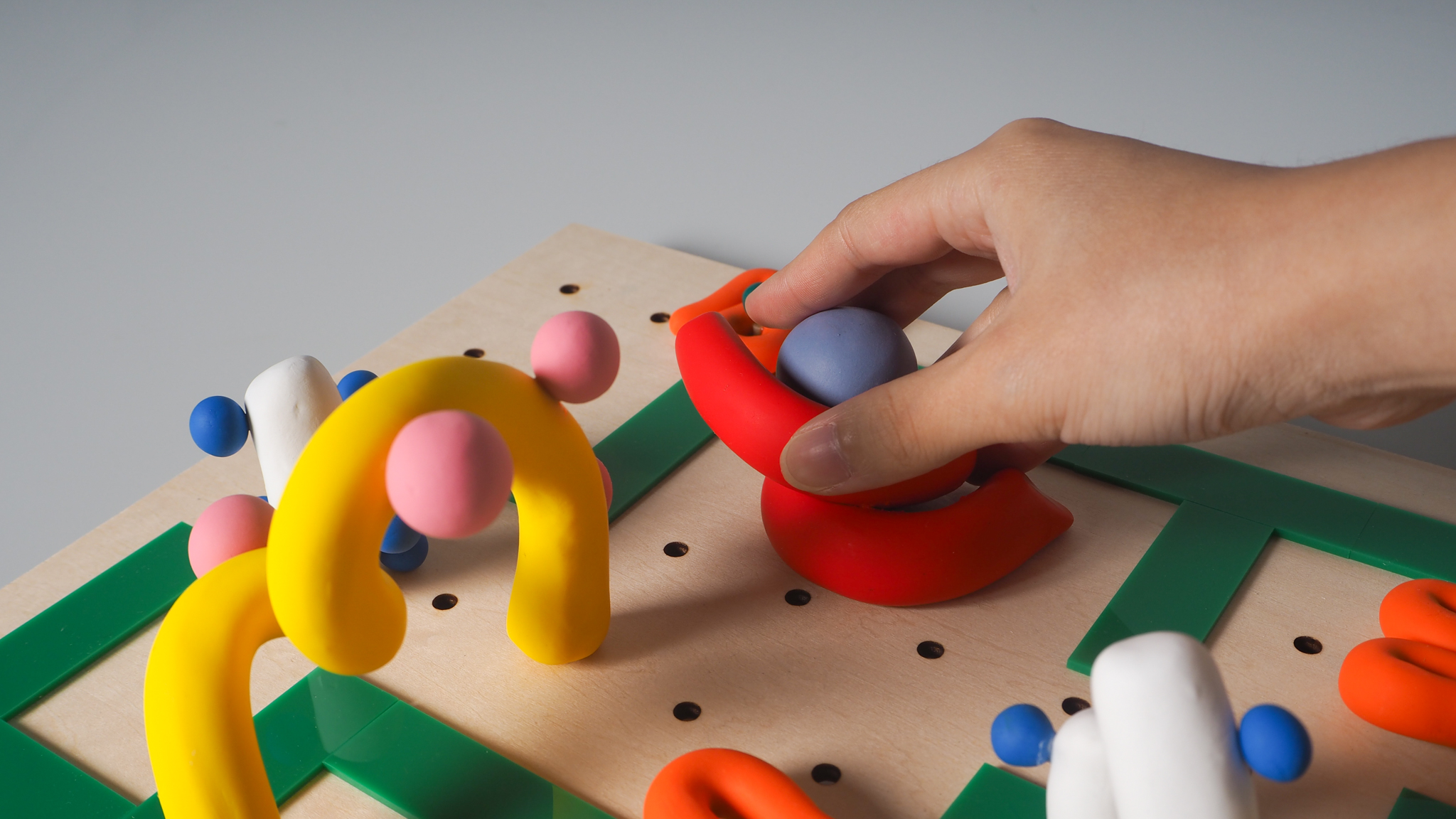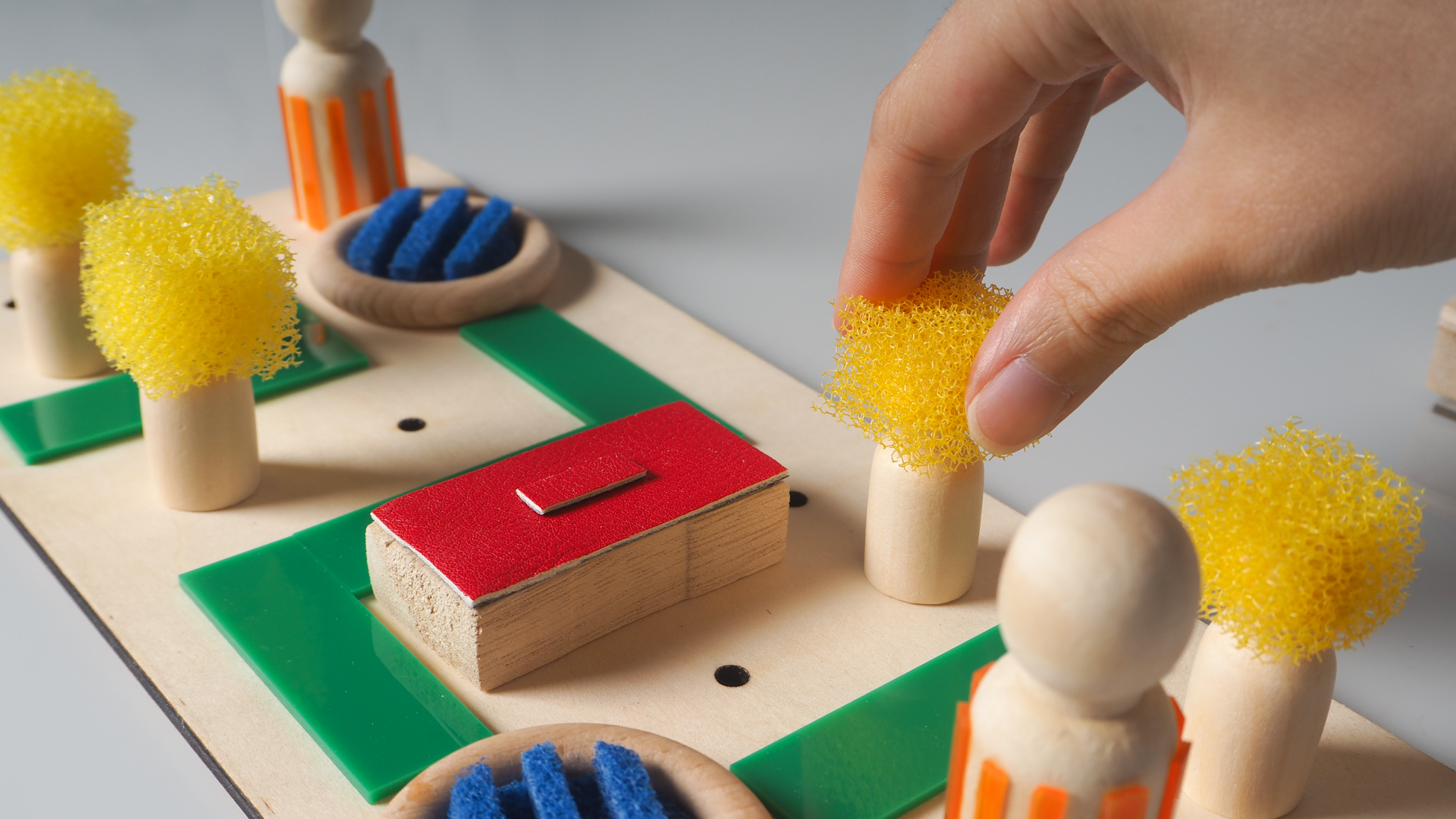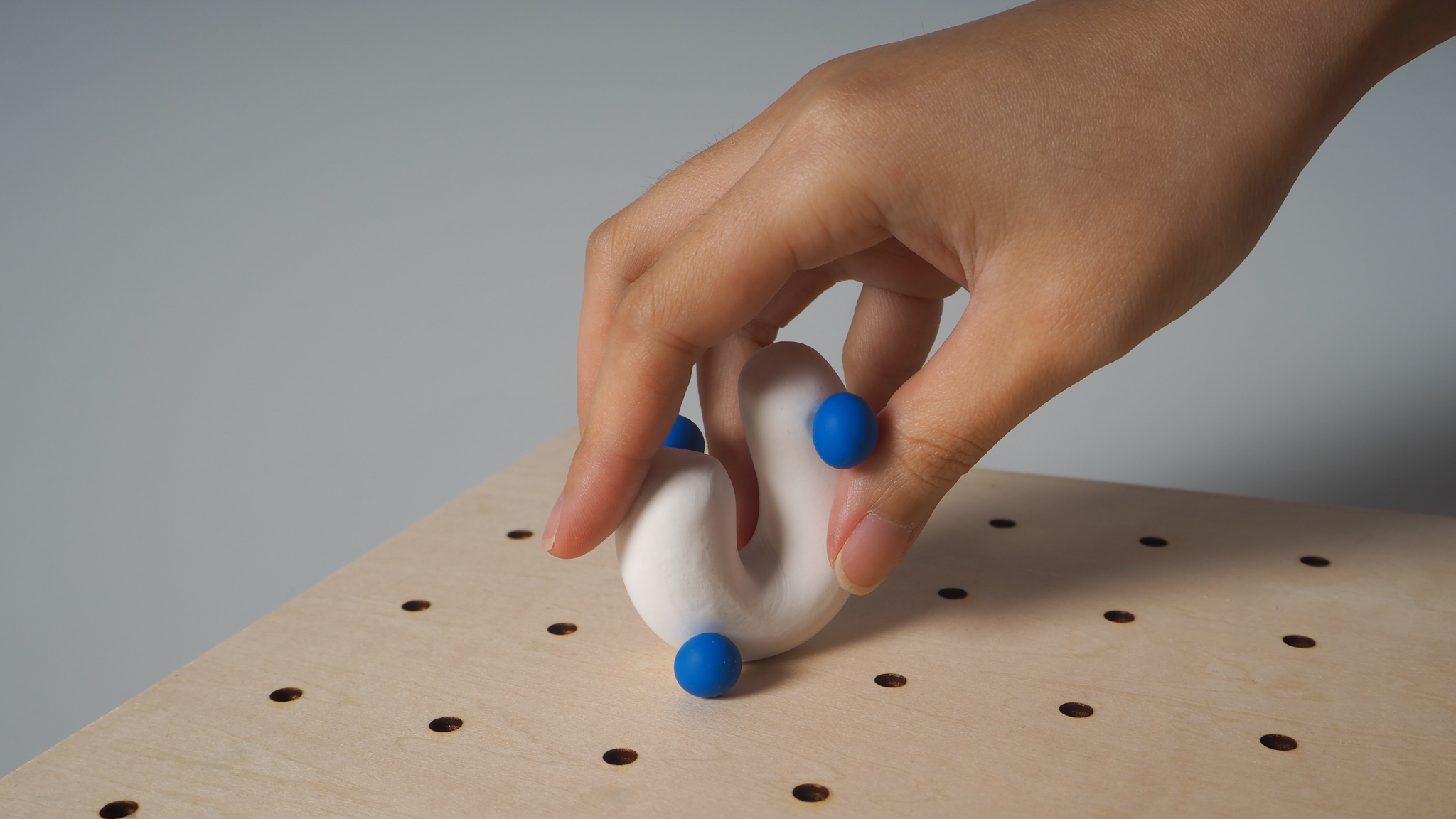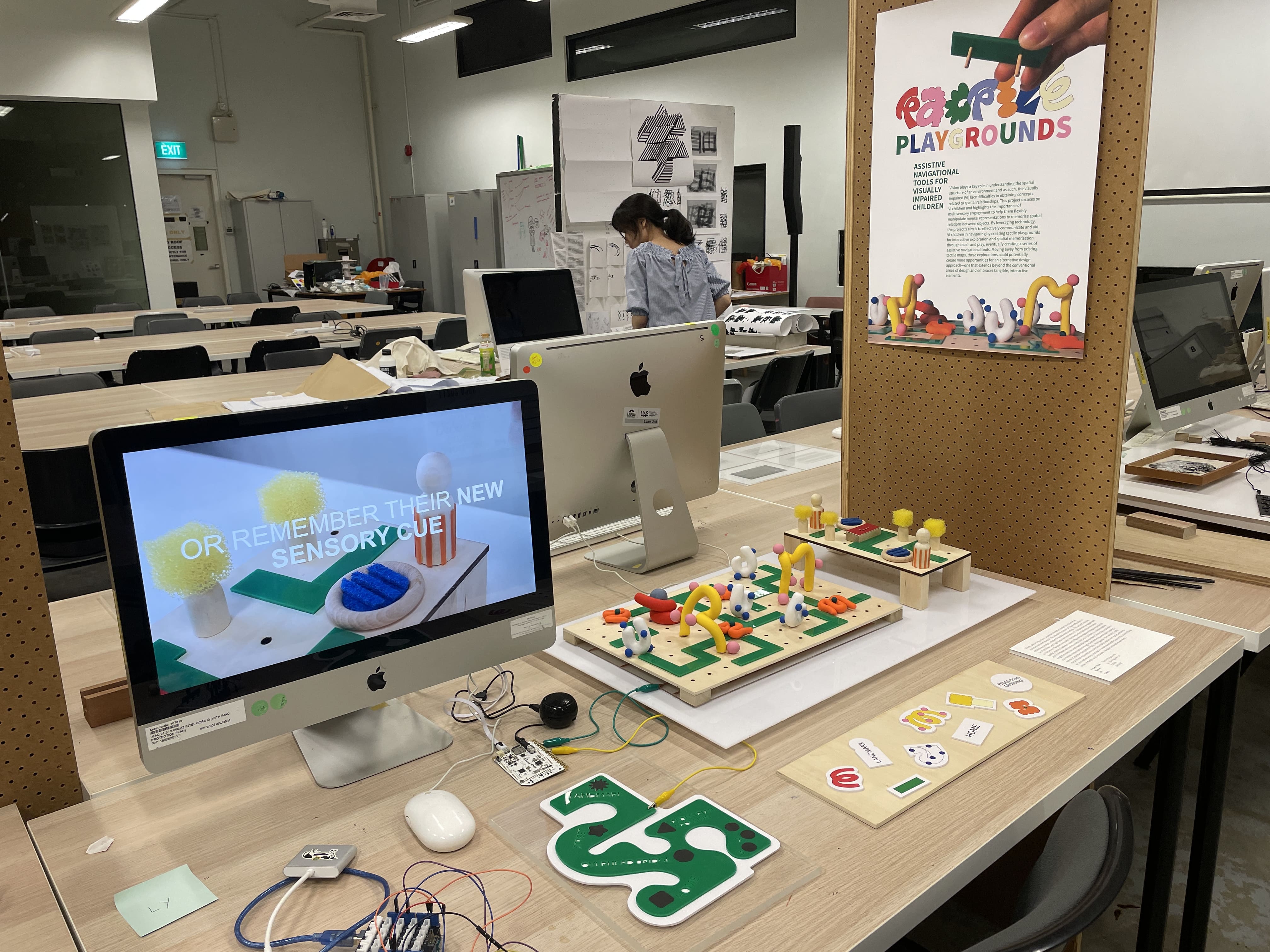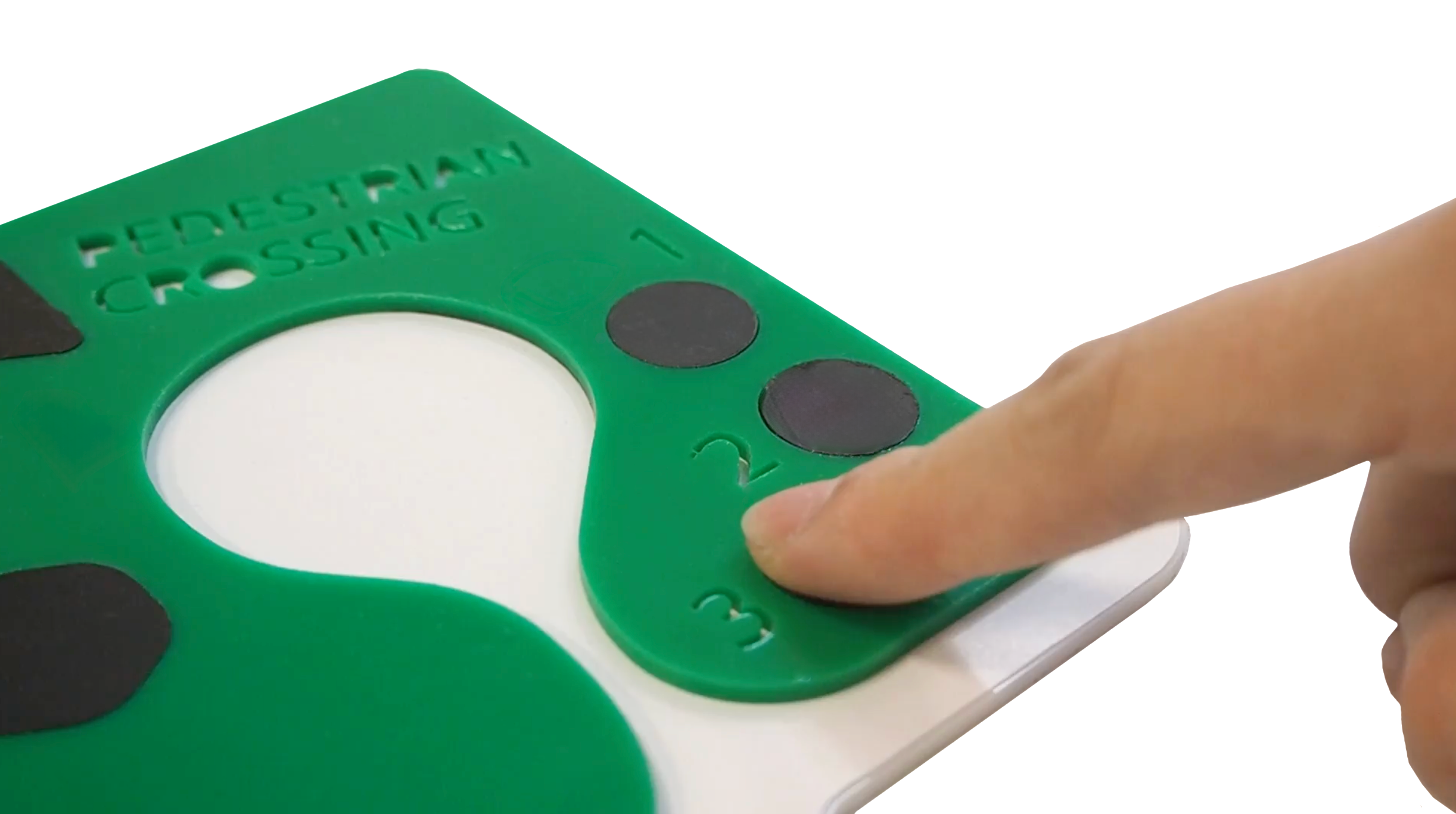
CATA
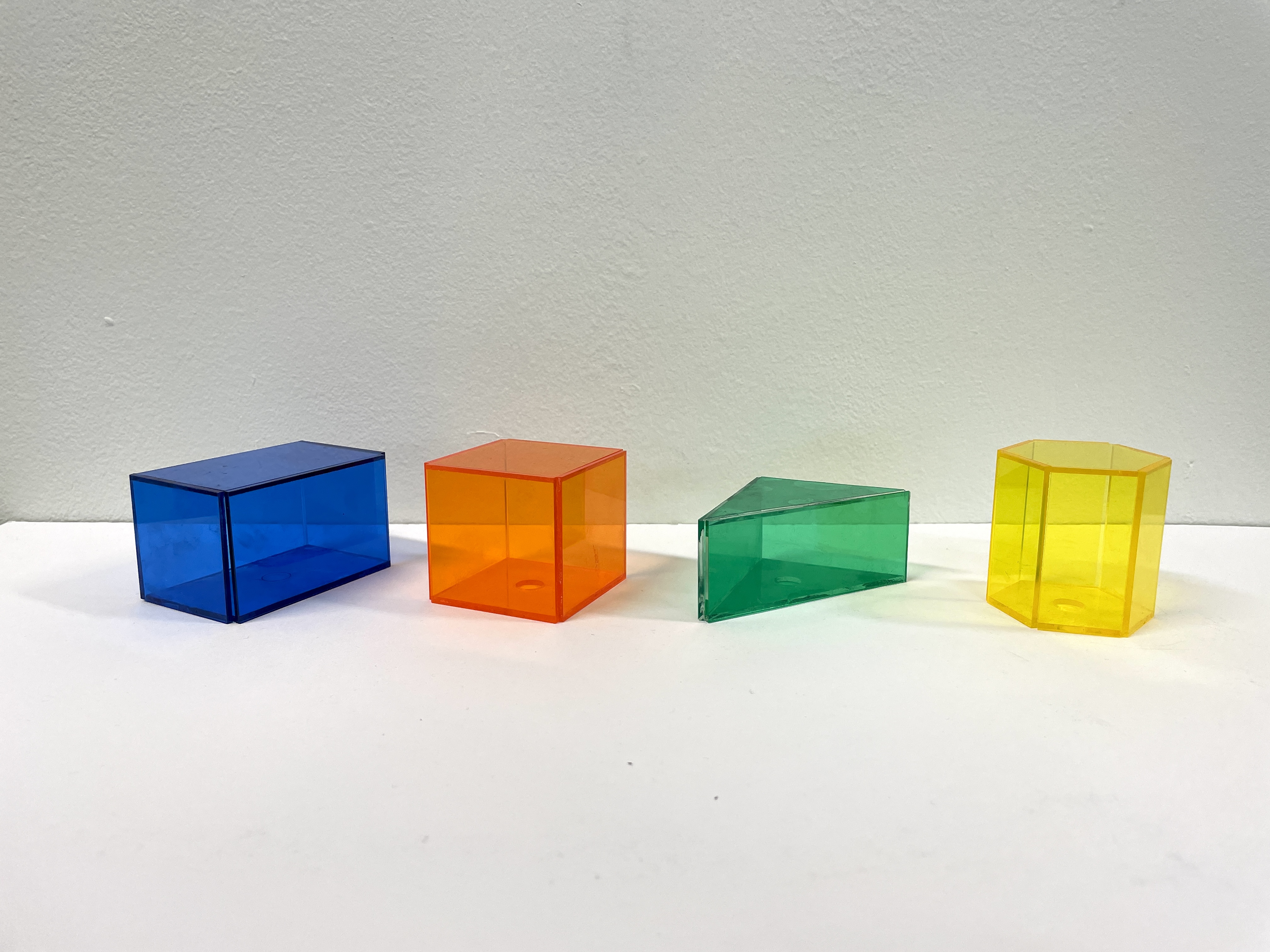
LOG
UE
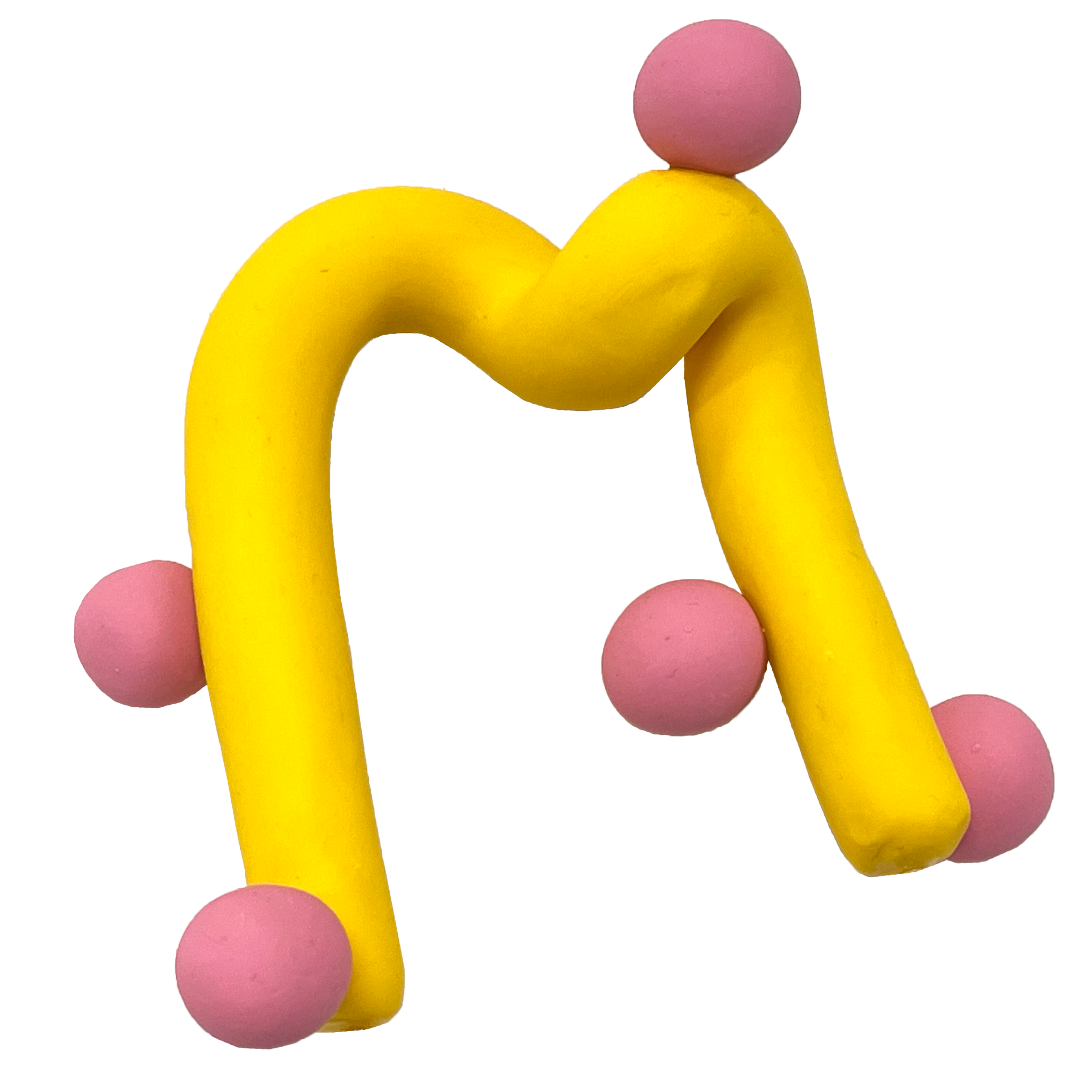
of
MAKING

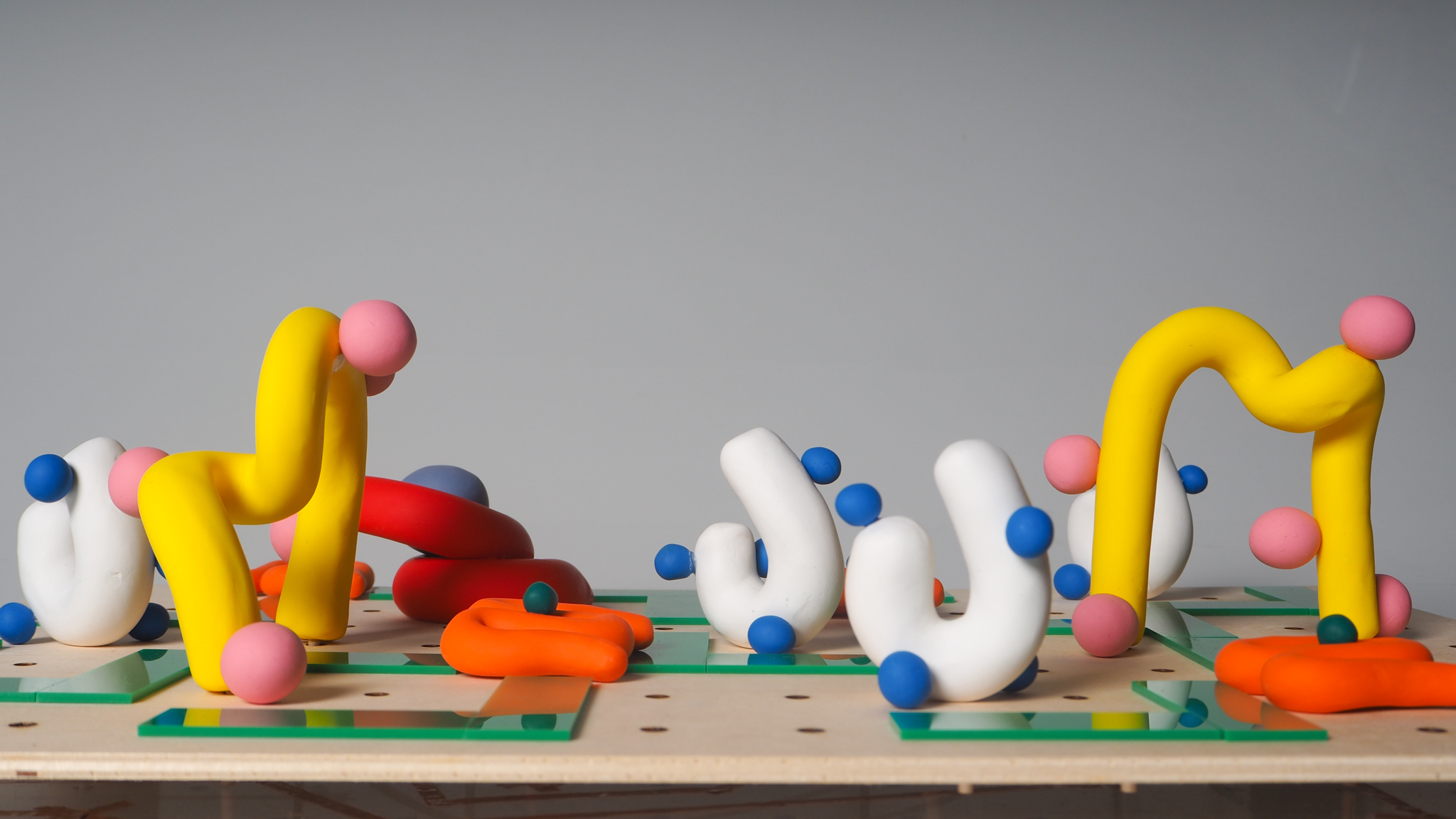
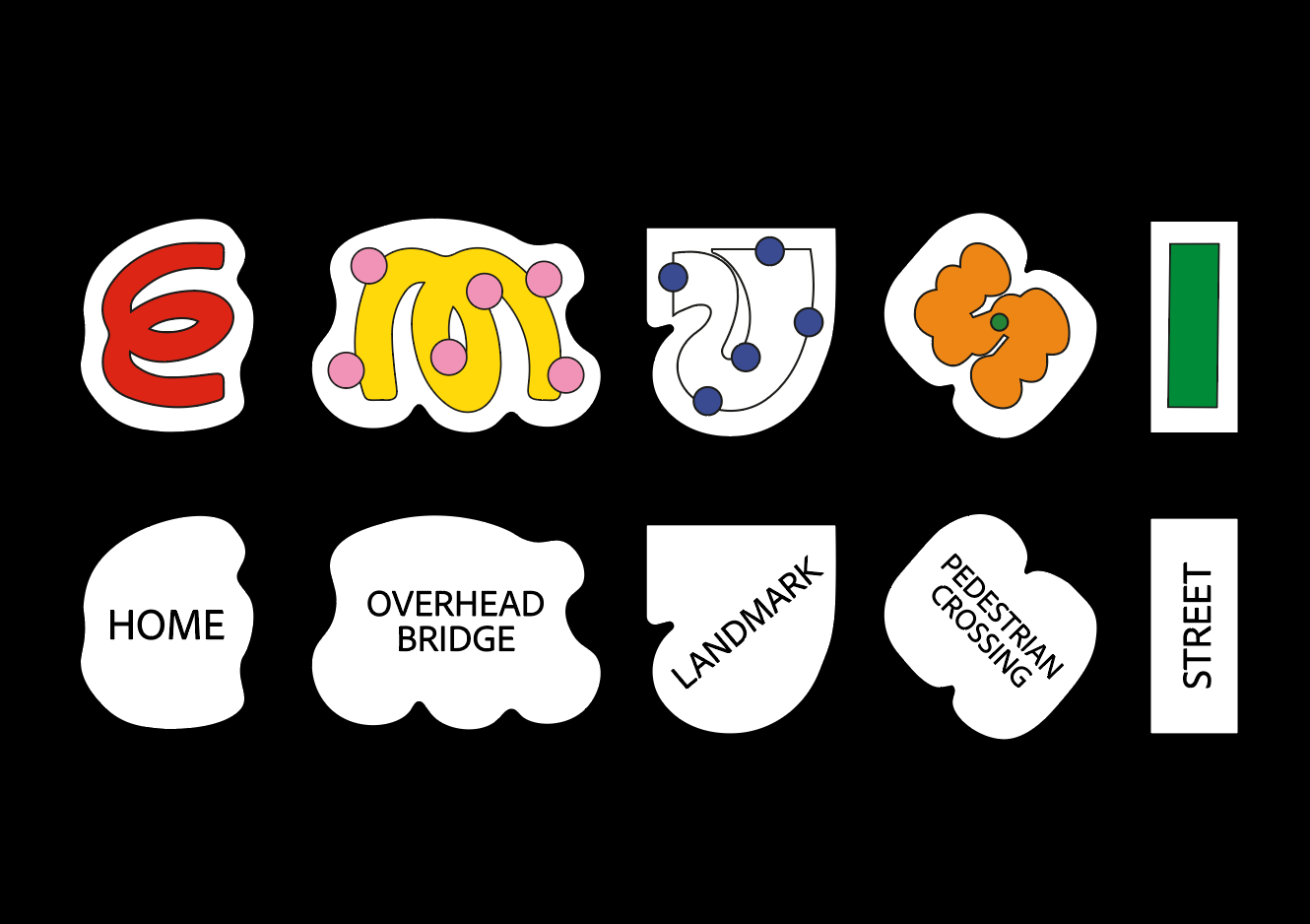
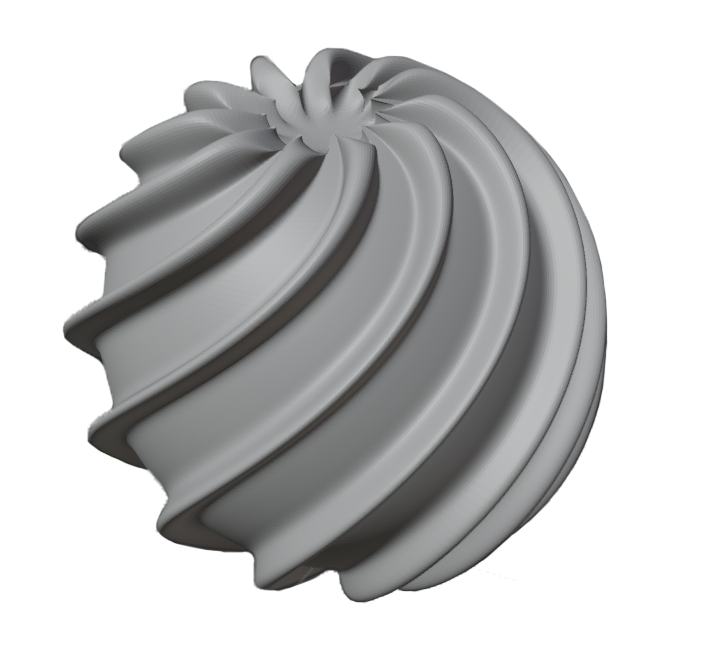
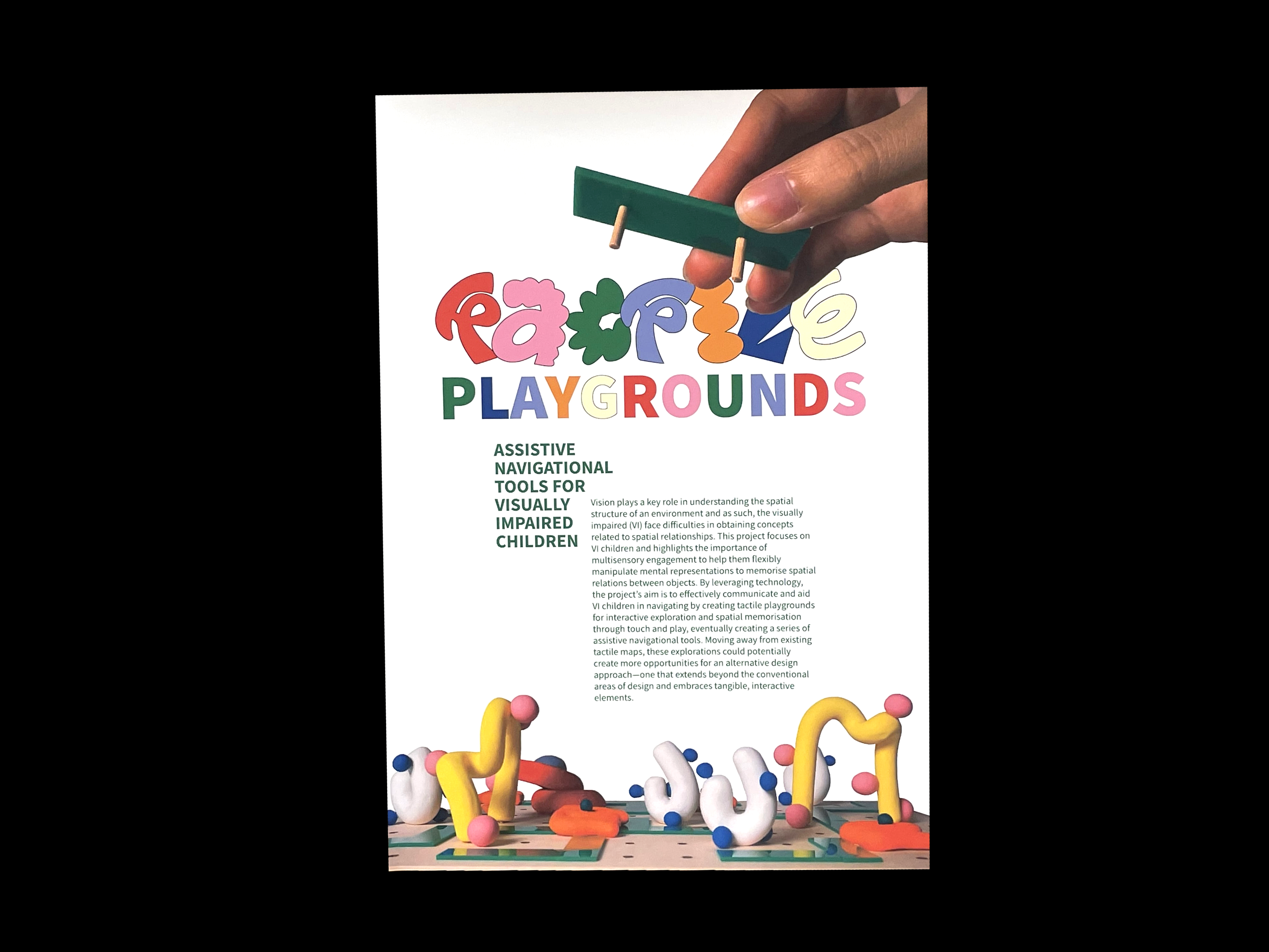
EXPLORING TEXTURES
TACTILE TEXTURES ON FOAM BOARD
These are simple tactile textures created with glue on each of their pieces of foam board. The aim with these textures is to create and test how easily distinguishable textures are by touch.
EXPLORING TEXTURES
3D TACTILE SPHERES
The previous tactile textures are remade in Blender, each with different variations, now presented in a spherical form specifically intended for 3D printing.
BUTTONS WITH SOUND AND LED
BEEPS AND LIGHTS
The buttons represent future object ideas. The three buttons are activated upon touch, emitting three distinct sequences of beeps. Meanwhile, the LED light is controlled by an on/off button.
-
One beep, two beeps and three beeps.
OBJECT IDEATION FOR LED
ACRYLIC FORMS WITH LIGHTS
Acrylic sheets in various colours were laser-cut and assembled to shape these forms. This material was chosen for its ability to transmit light effectively.
-

The LED will turn on when the object is touched.
OBJECT IDEATION FOR SOUND
CLAY
OBJECTS #1 + CONDUCTIVE BOARD
Using clay provides greater flexibility in shaping my own designs. The clay objects are intended to be abstract, allowing users to interpret them according to their imagination. Each clay object is hand-formed, baked, coated with conductive paint, sprayed with acrylic varnish, and finally painted with acrylic paint to cover the conductive one.
-
Sounds with touch pads.
-
Sounds with clay objects.
CONVEYING INFORMATION
BROSHURE
The brochure aims to give background information about my project. The written content delves into topics such as cognitive mapping, spatial navigation, tactile sensing and play-based learning, all connected to visually impaired children.
CONVEYING INFORMATION
INSTRUCTIONAL BOARDS WITH ILLUSTRATIONS
The purpose of the boards is to provide users with instructions on how the toolkit works, including what each object represents, what sensory cues there are, and how to assemble the board.


Overview of what each object represents and their sensory cues.

How to assemble the board.

Functionality of the objects.


The ability to change the objects, as well as the sensory cue between sound, vibration and lights.
OBJECT IDEATION FOR SOUND
CLAY
OBJECTS #2
The decision to remake the clay objects stemmed from the messy and unrefined appearance of the previous ones. Additionally, the size of the balls for each category has been changed to enhance their distinctiveness for the user.
OBJETC IDEATION FOR VIBRATION
TEXTURED FIGURES
The idea is to have figures with various textures, enabling users to differentiate each object based on its tactile feel.
-
The object will vibrate if touched.
CONVEYING INFORMATION
INSTRUCTIONAL TOUCH BOARD WITH AUDIO
The instructions were modified from visual to audio format to better accommodate the needs of the visually impaired. The board explains what each object represents and what sensory cues they have for sound and vibration. Additionally, it guides users through the functionality of the toolkit, including the use of memory cards, the board, and engaging in play-based learning.
-
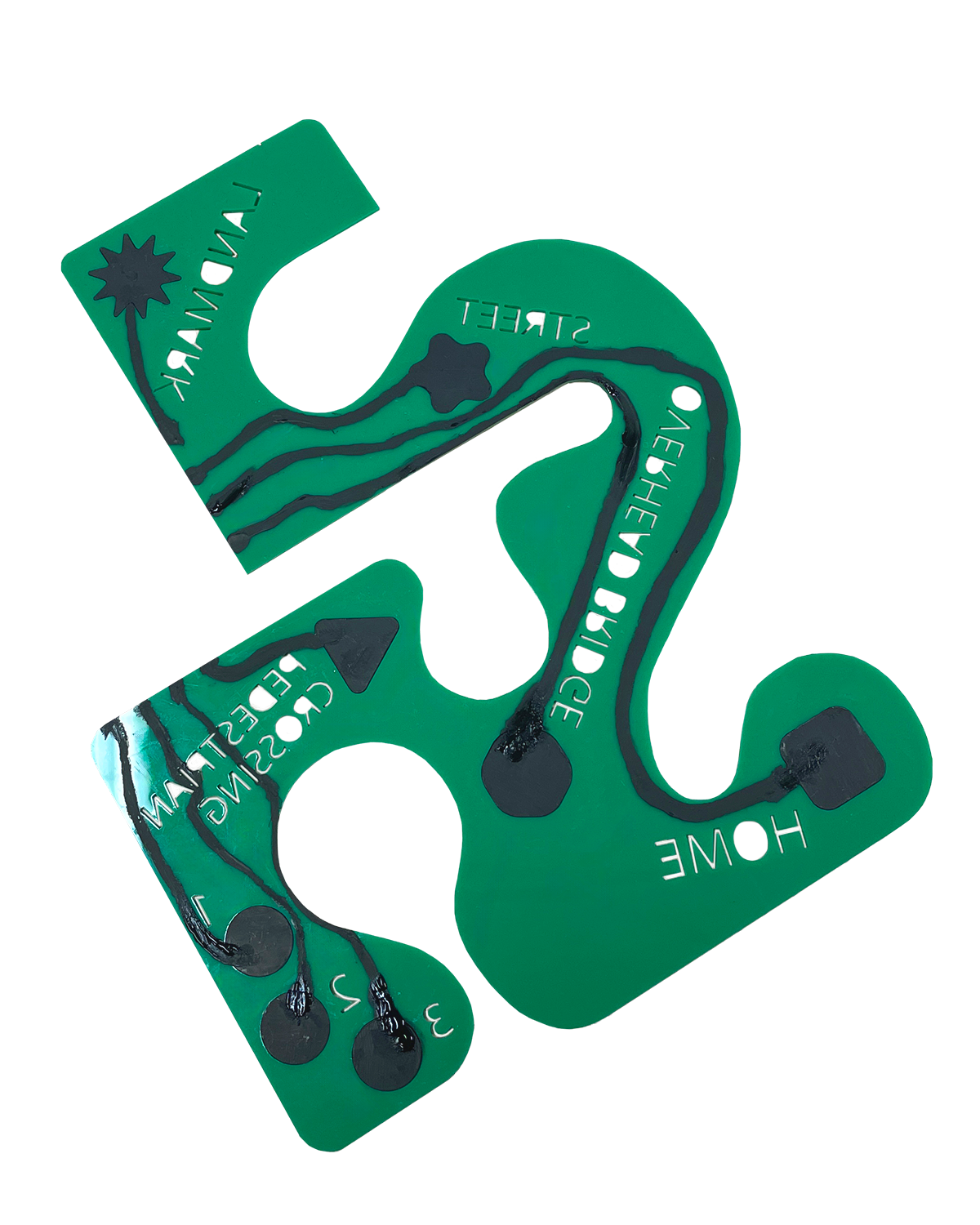
The circuit painted with conductive paint.
-
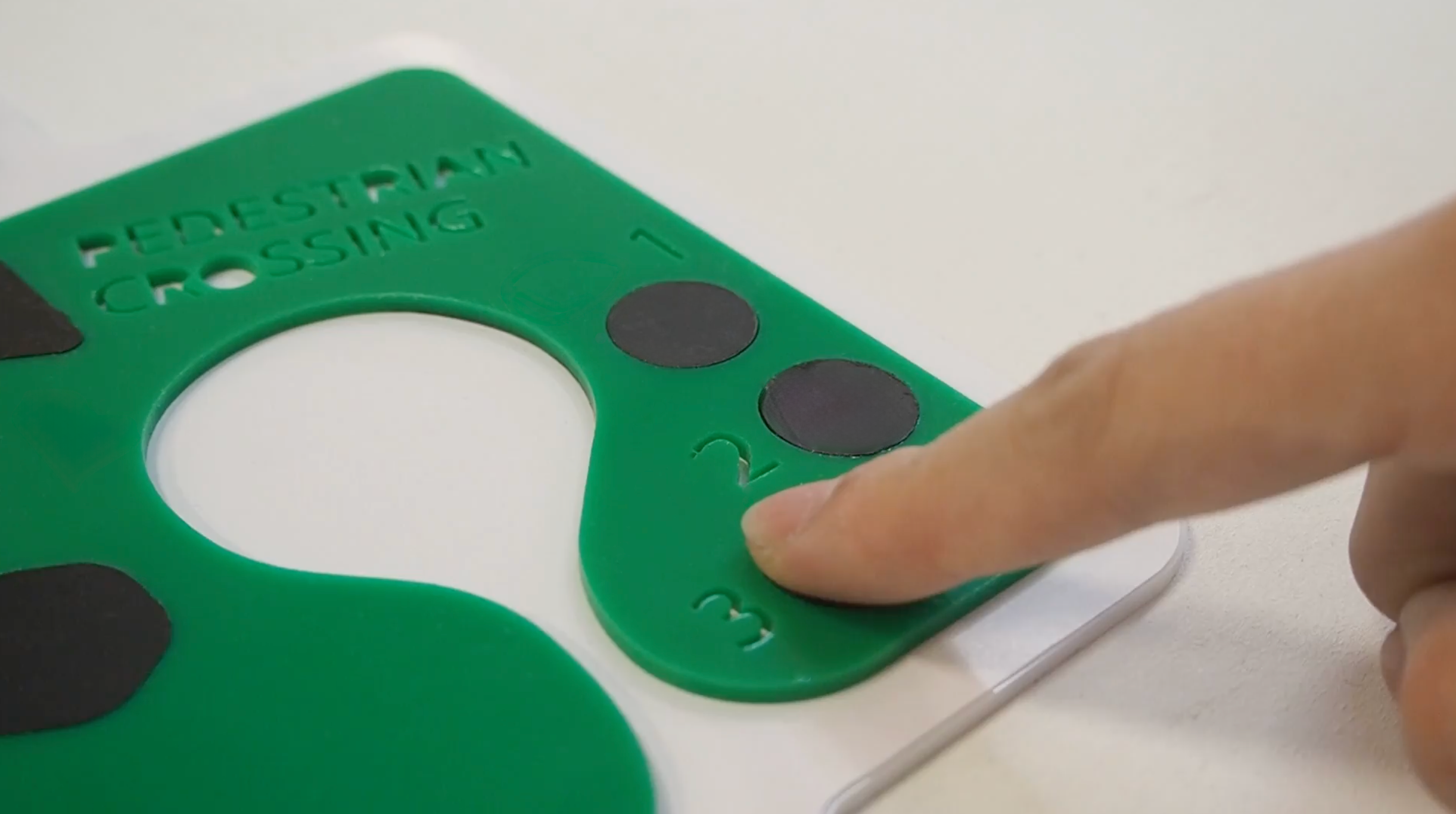
-
The sound on the Bare Conductive board.
-
The Bare Conducitve board connected to the instructional board.
-
HOME
-
OVERHEAD BRIDGE
-
LANDMARK
-
PEDESTRIAN CROSSING
-
STREET
-
INSTRUCTION 1
-
INSTRUCTION 2
-
INSTRUCTION 3
GAMIFYING MEMORISATION
PLAY WITH MEMORY CARDS
Memory cards are included because audio instructions alone cannot visually depict the appearance of the toolkit’s objects. Users are encouraged to examine the illustrations, make guesses about the represented objects, and then turn them over to verify their guess.
-

Illustrations of set 1.
-
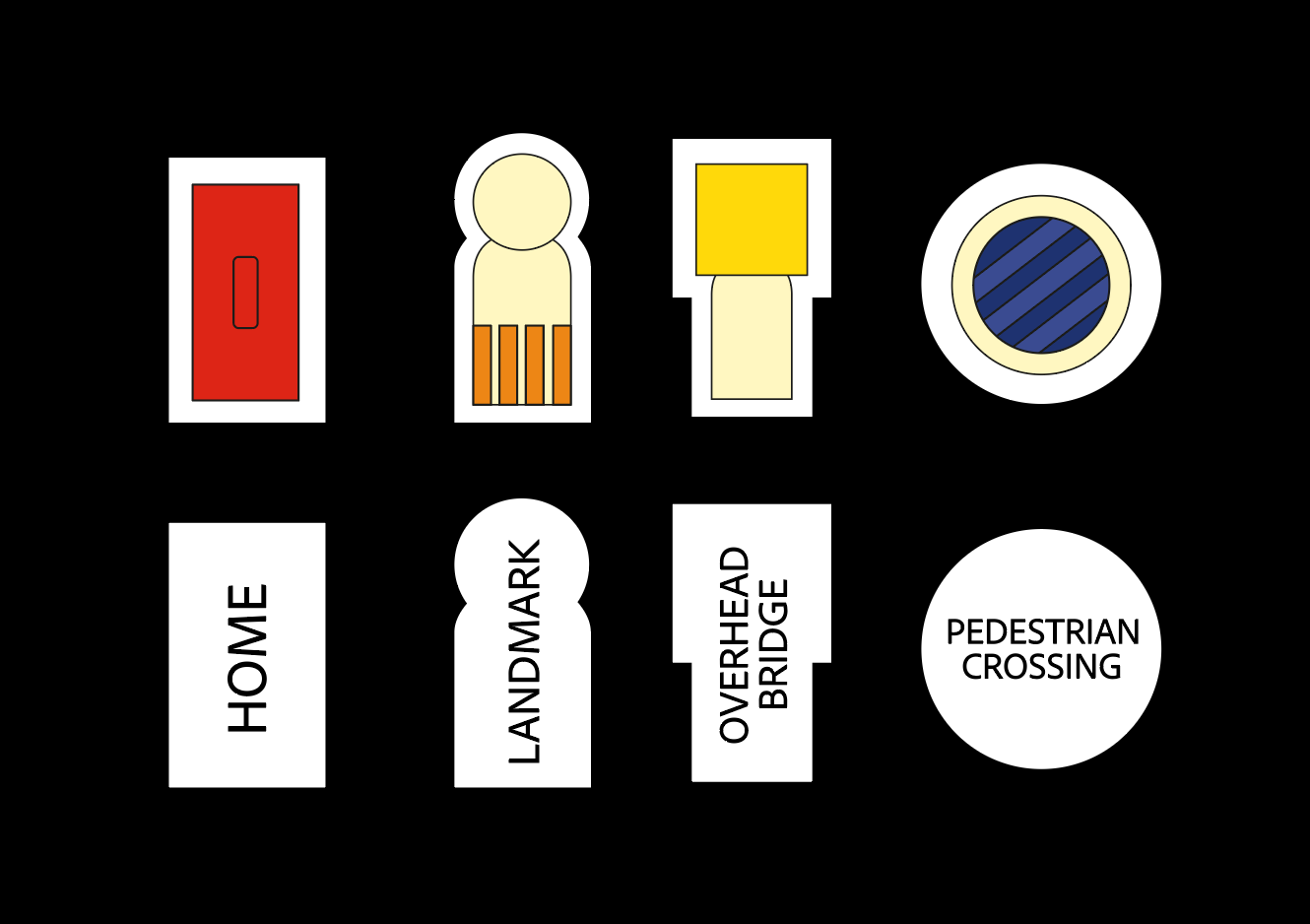
Illustrations of set 2.
CONVEYING INFORMATION
OVERVIEW POSTER
The poster is designed to provide an overview of the project, featuring the title, image of the tactile board, and a statement outlining the design concept.
FINAL OUTCOME
Product demonstration video.
-
Set-up for submission.
